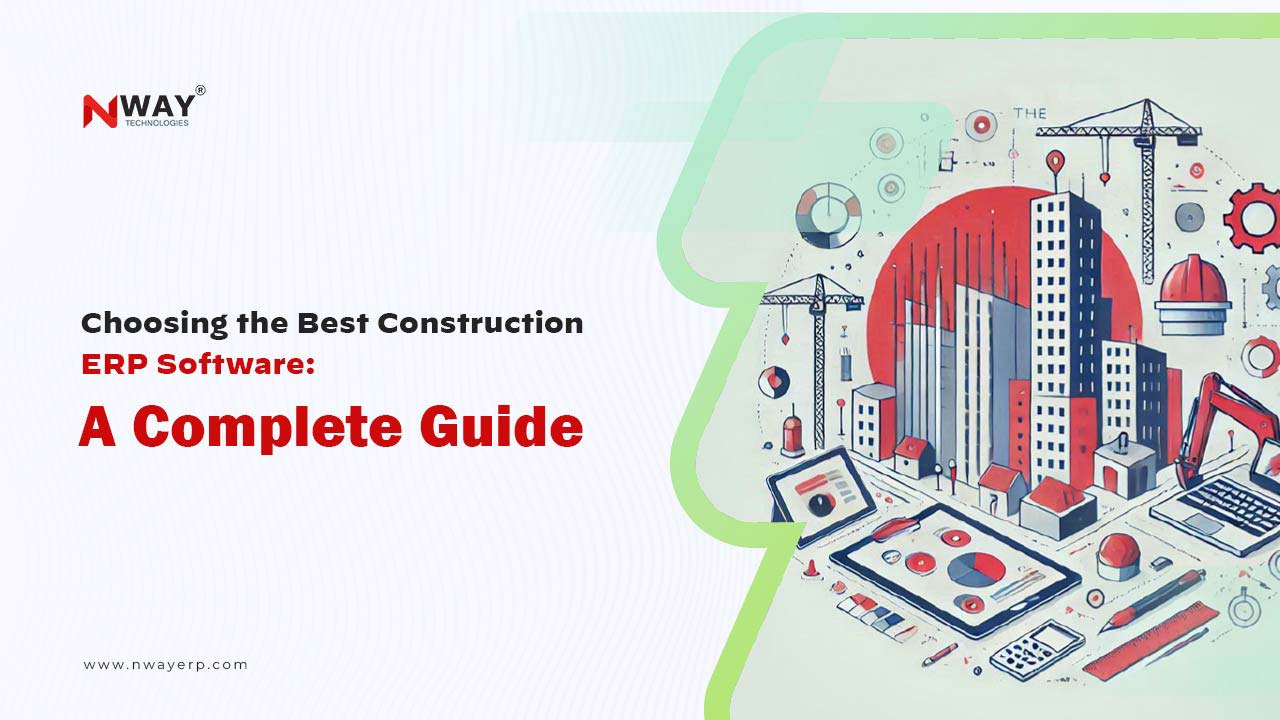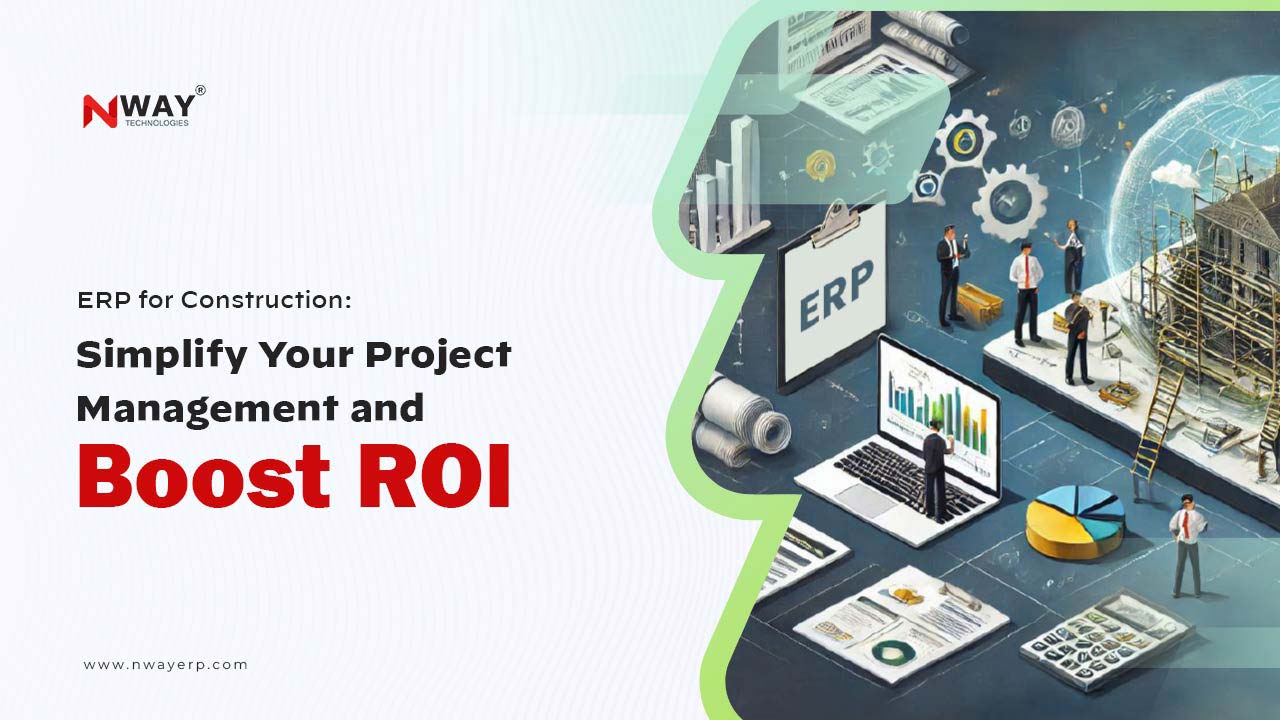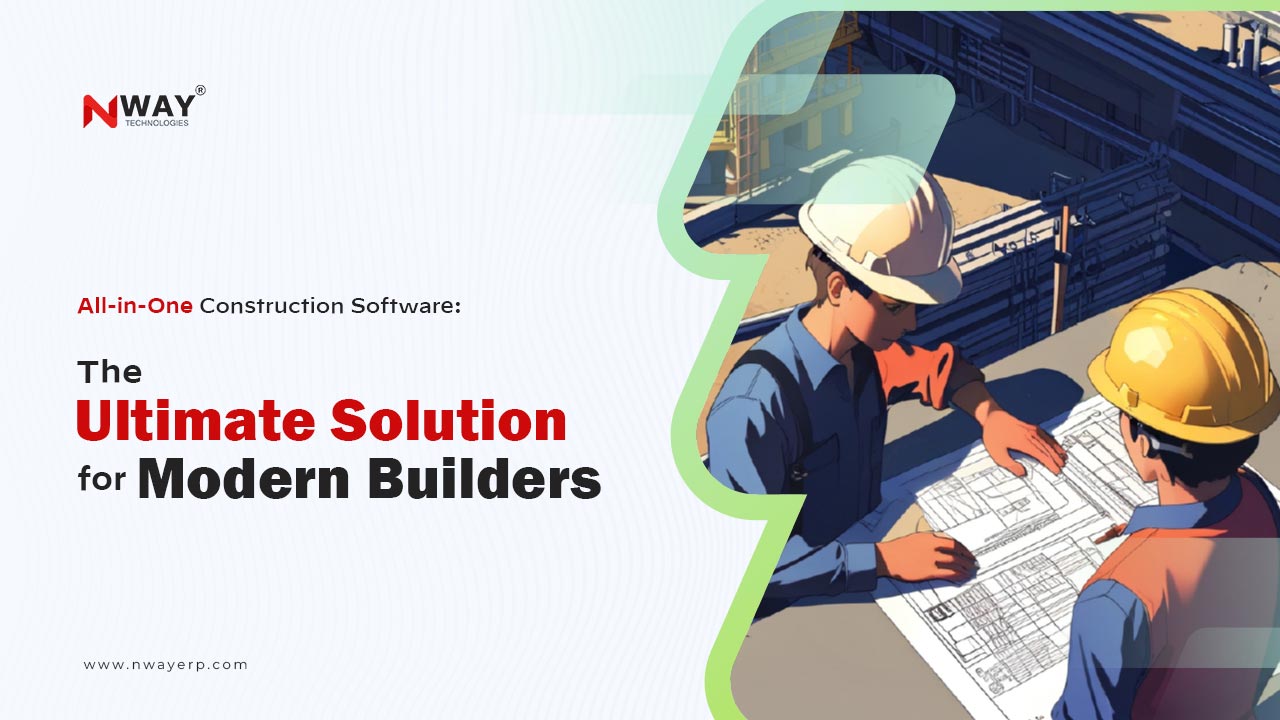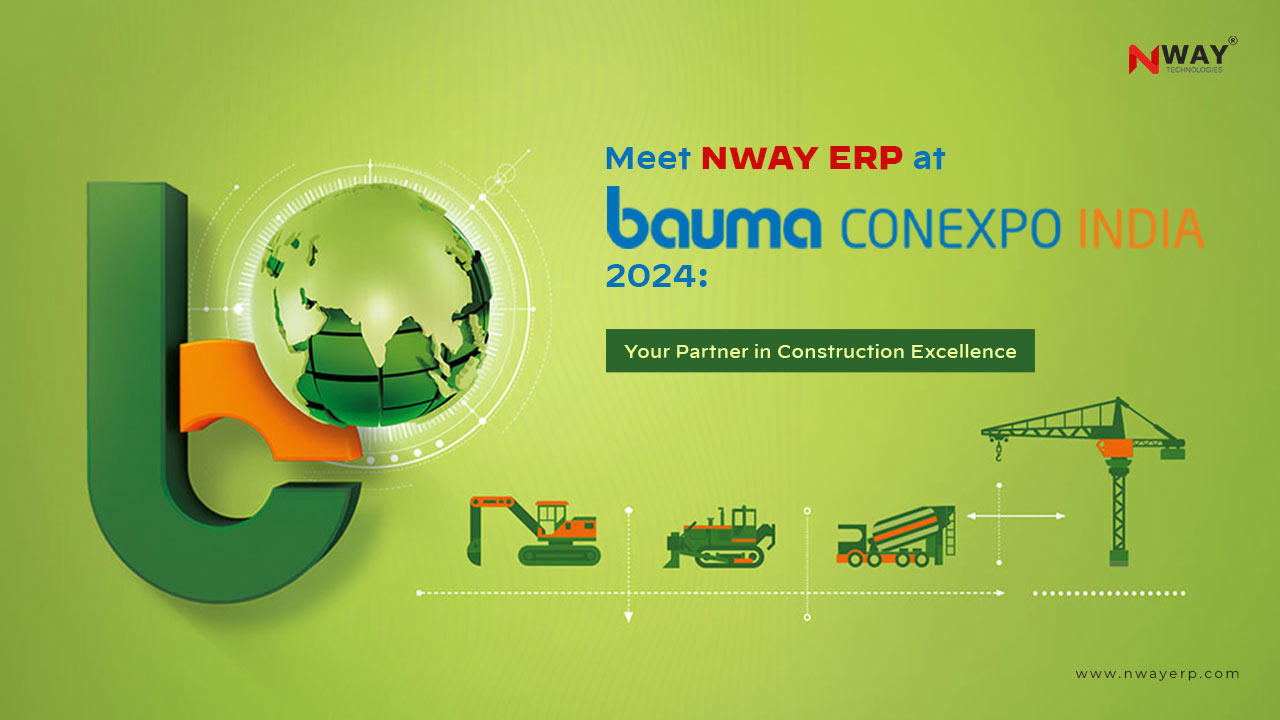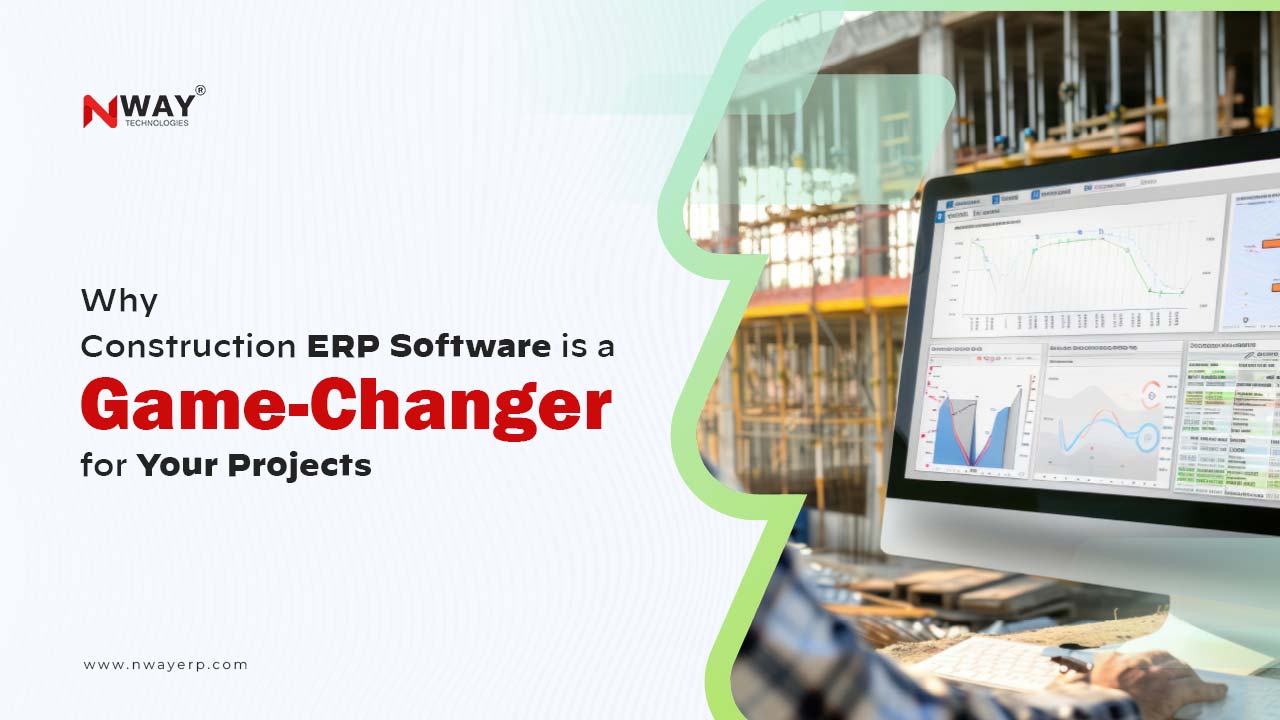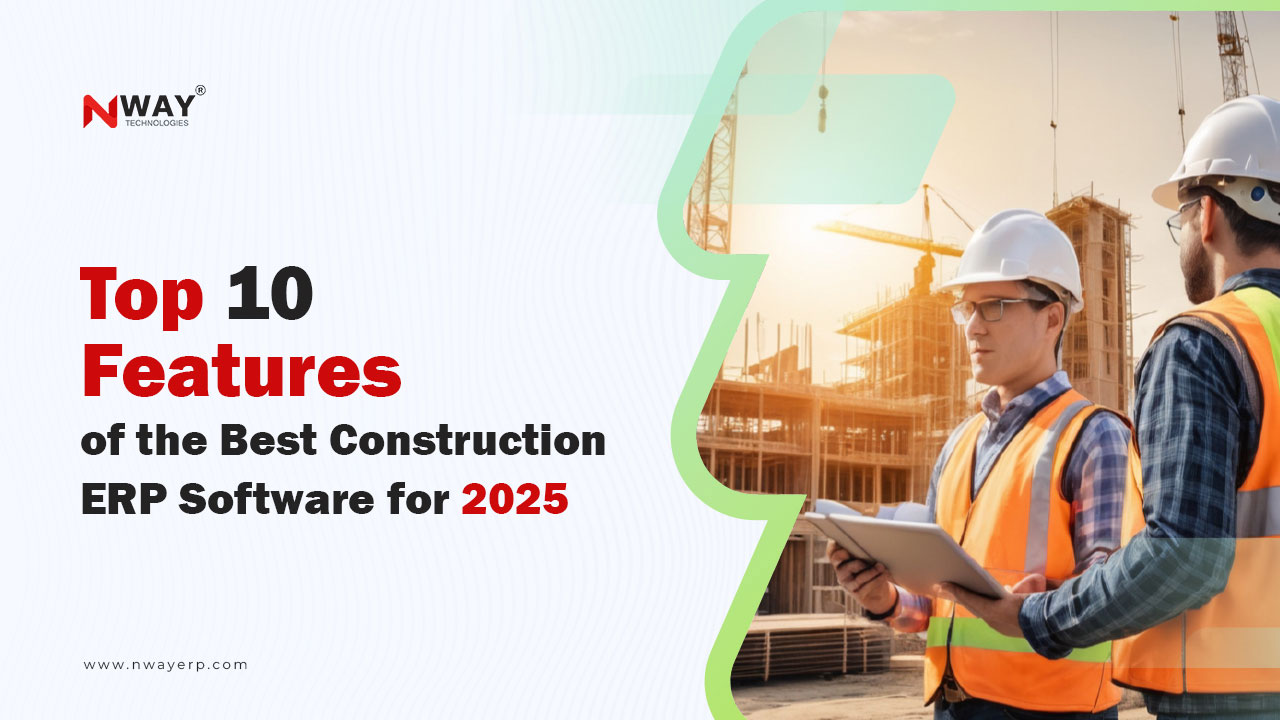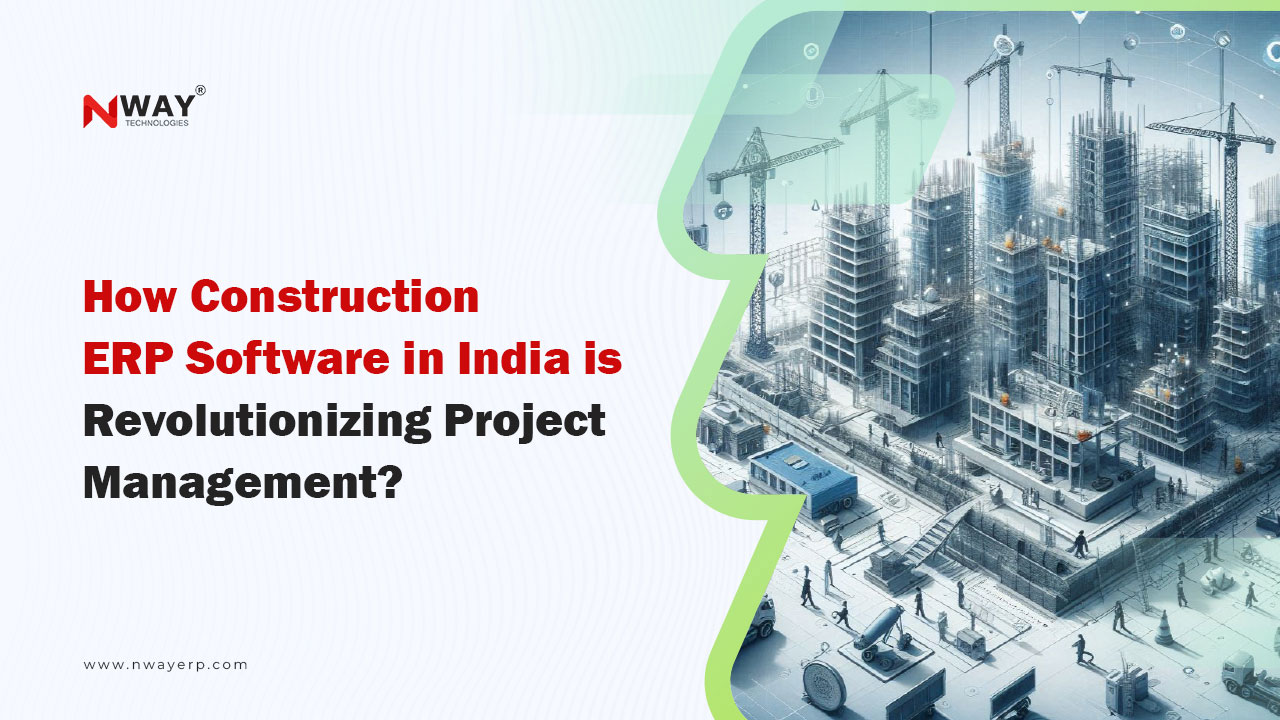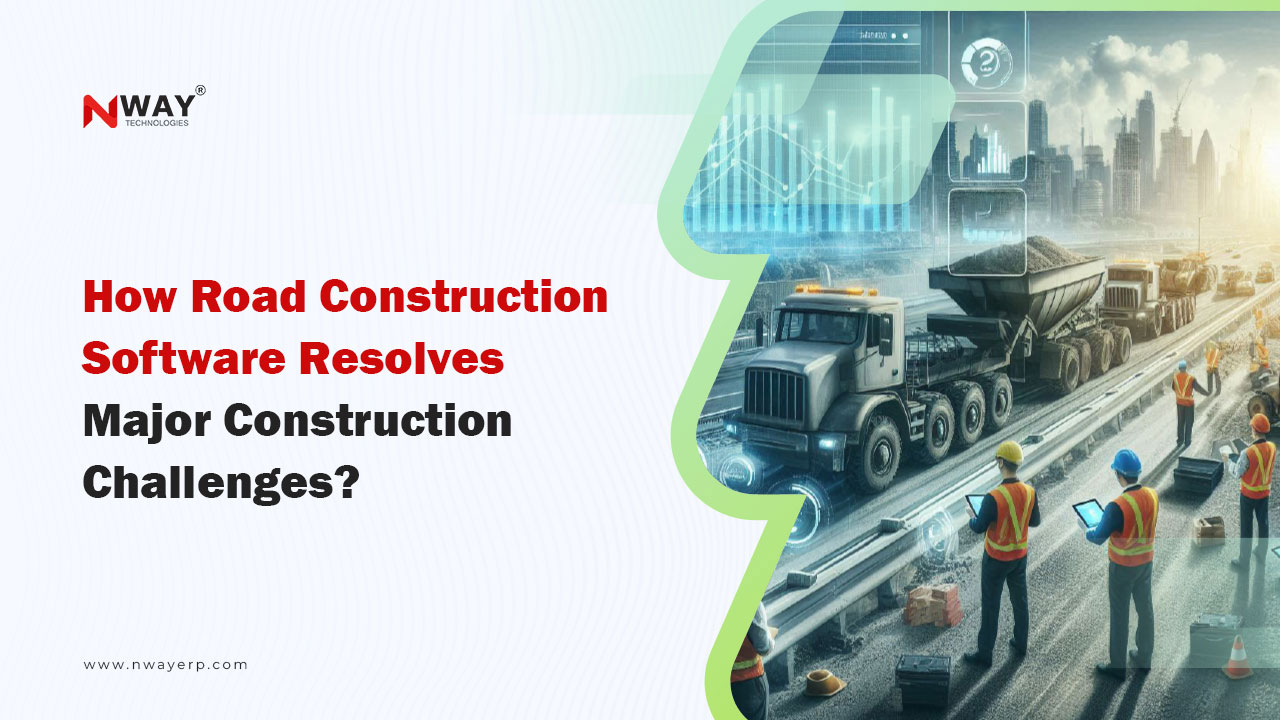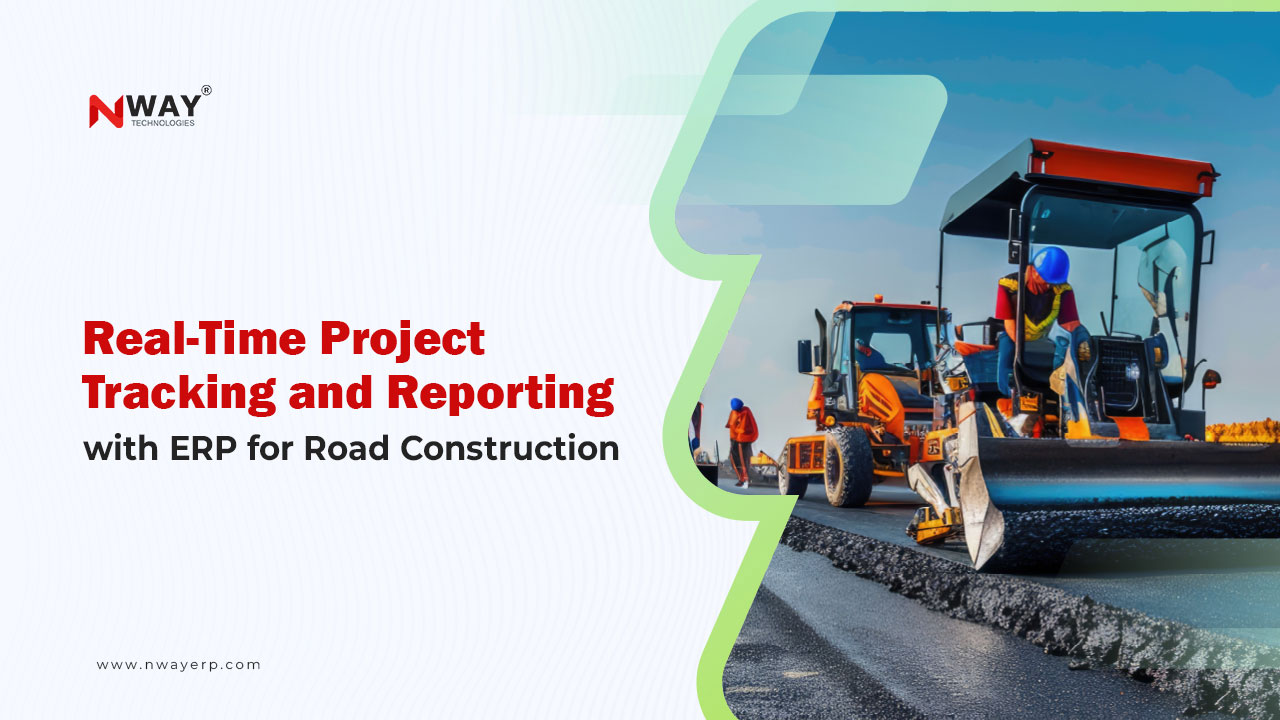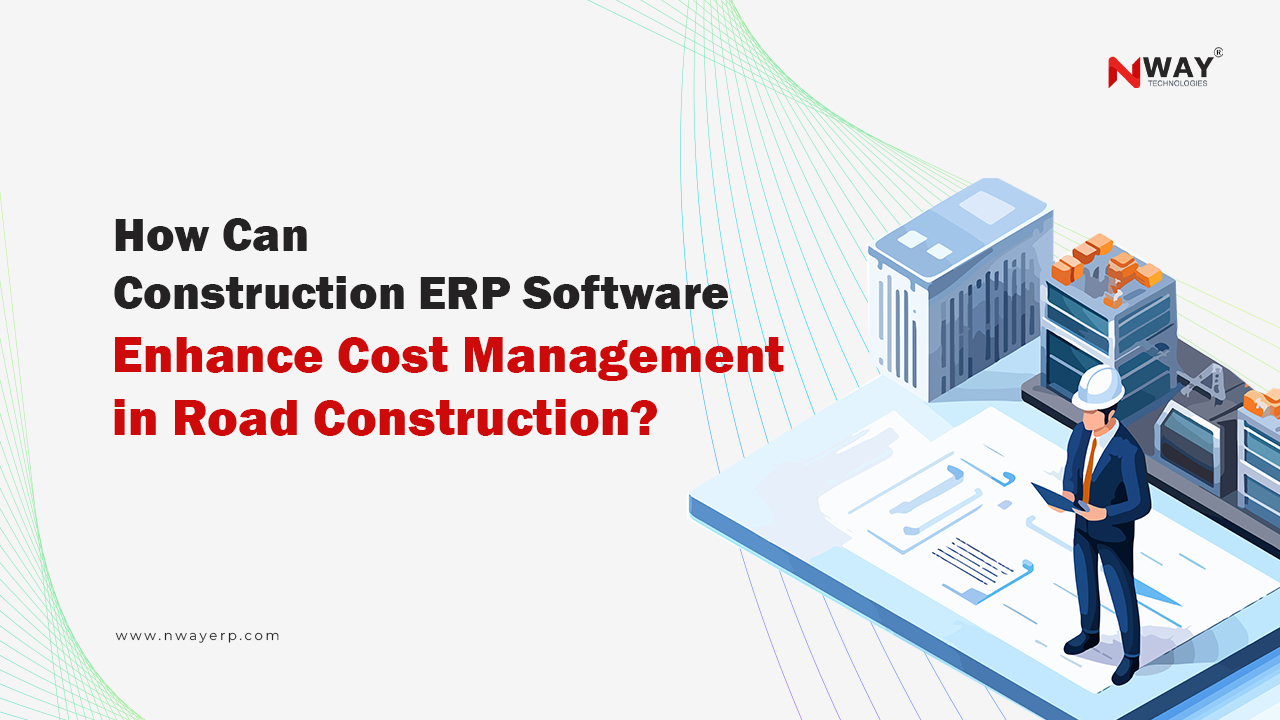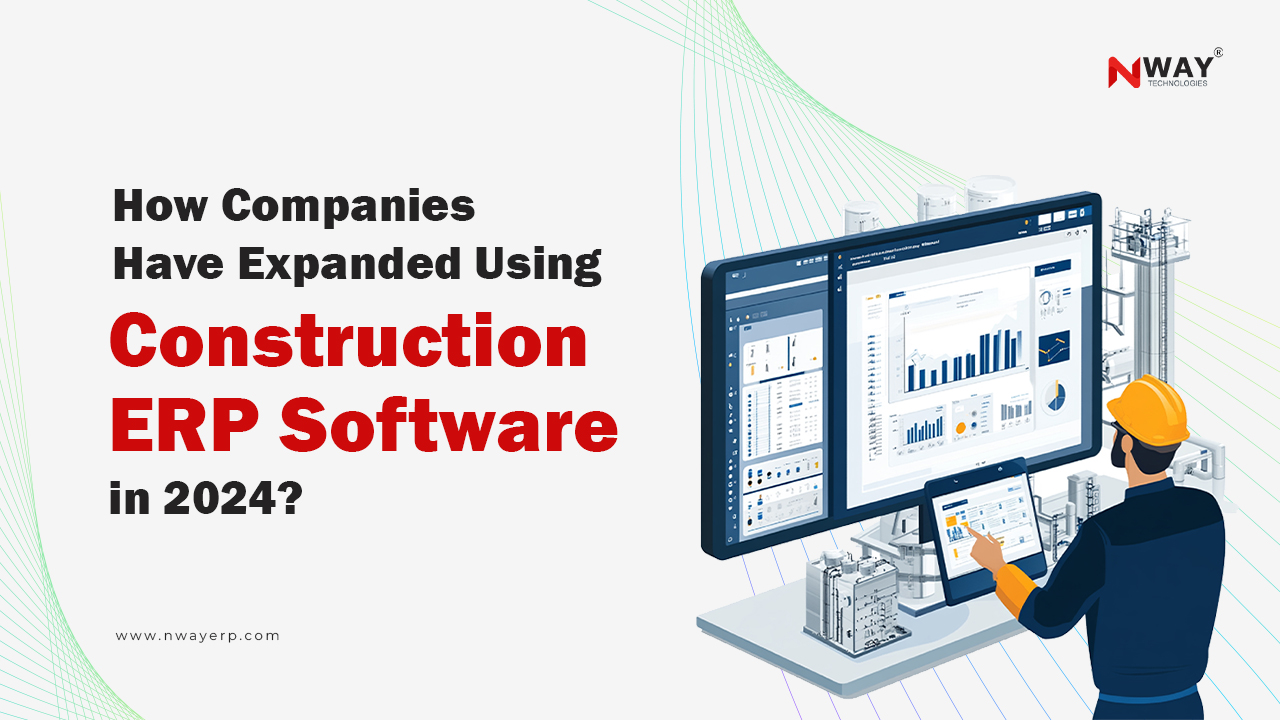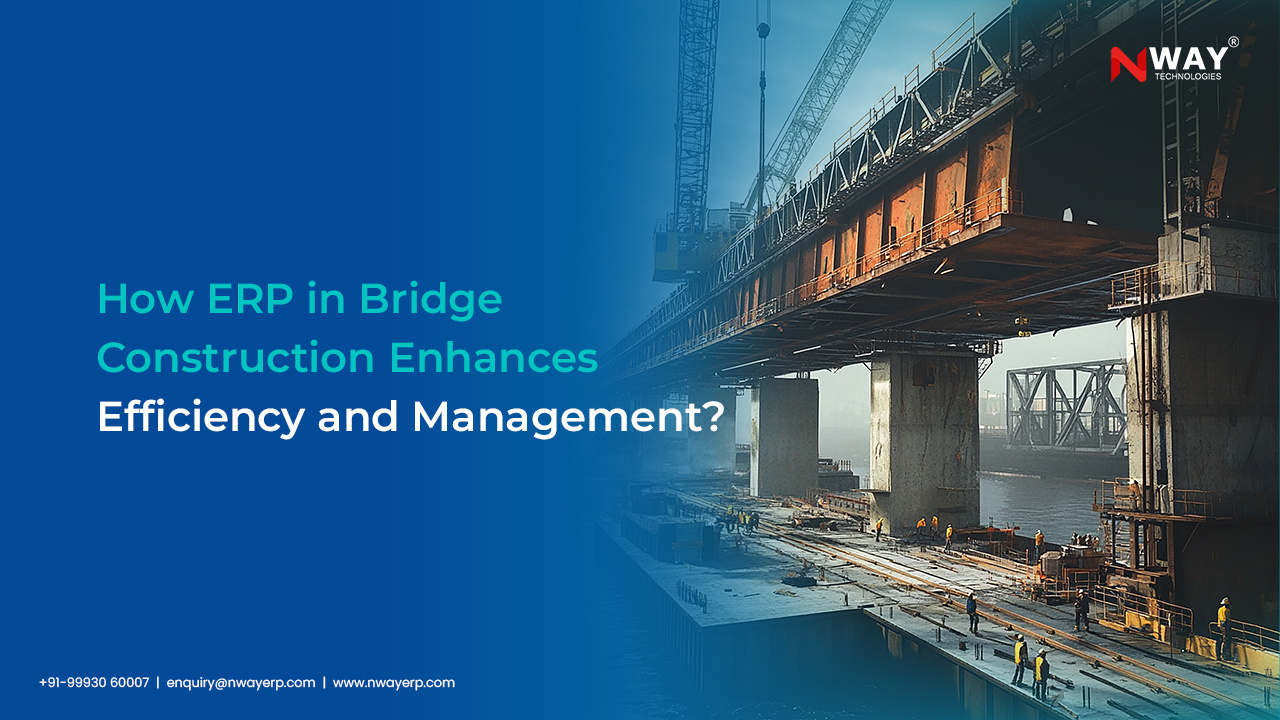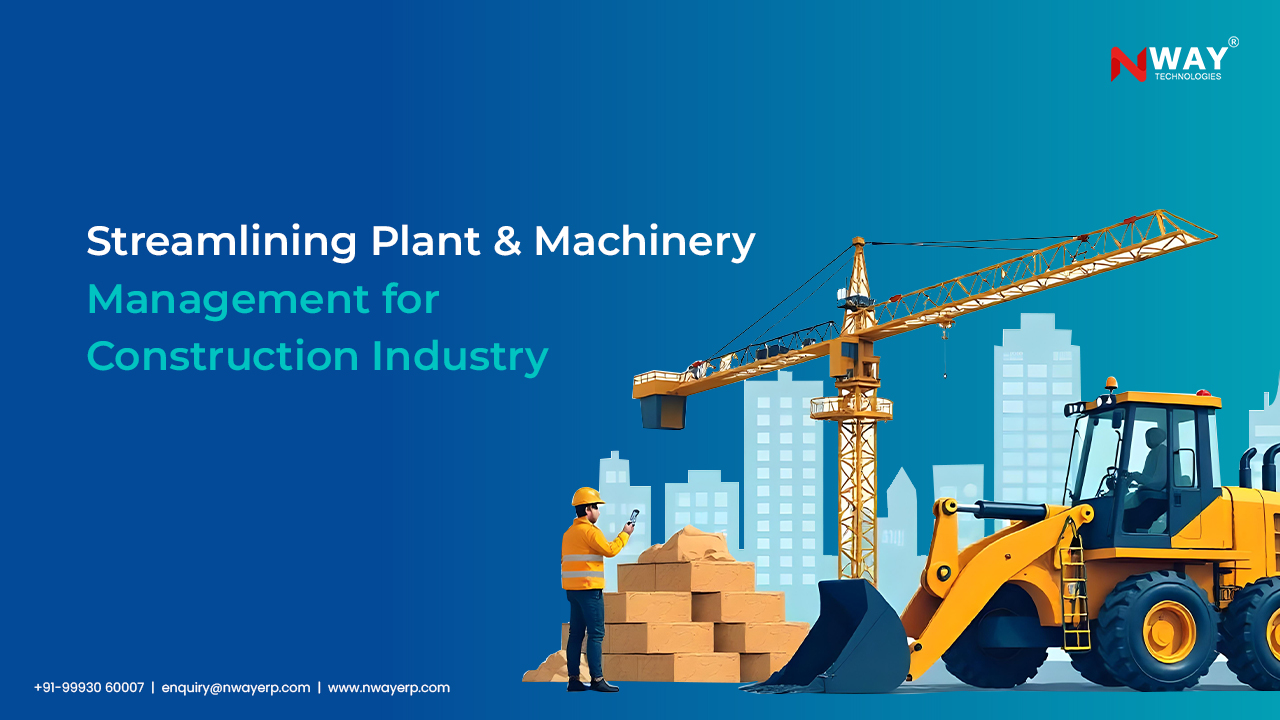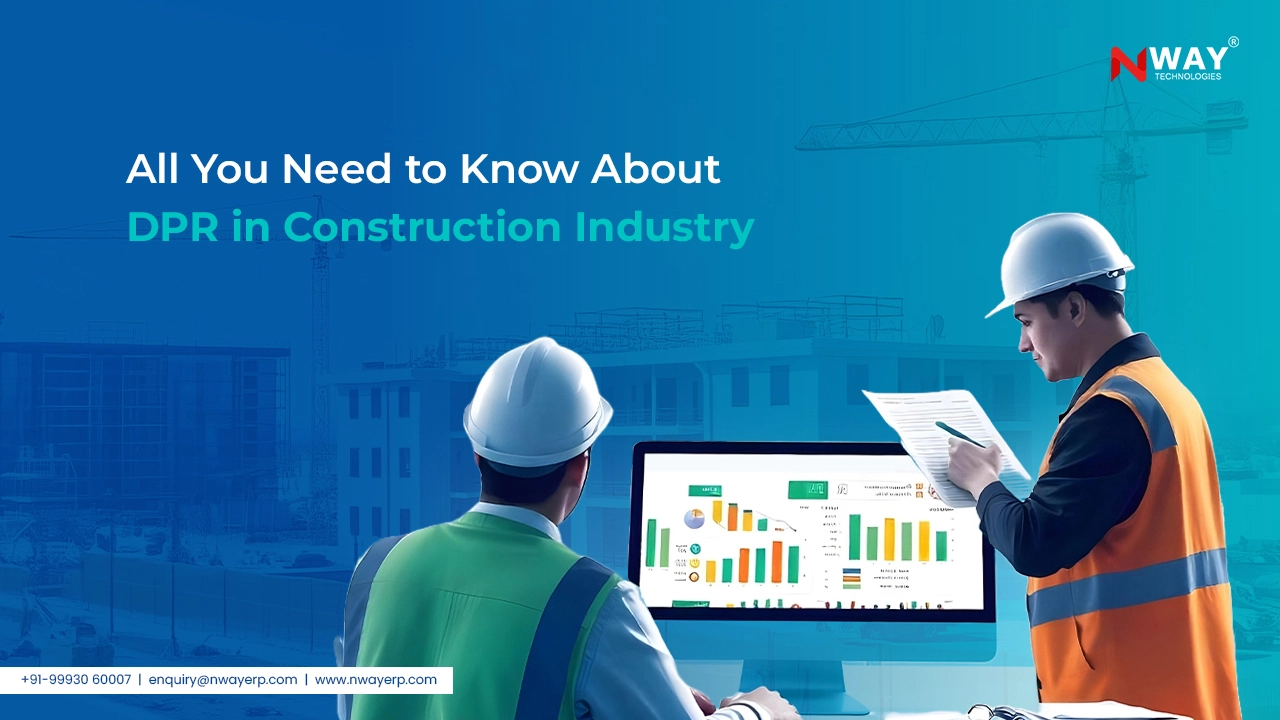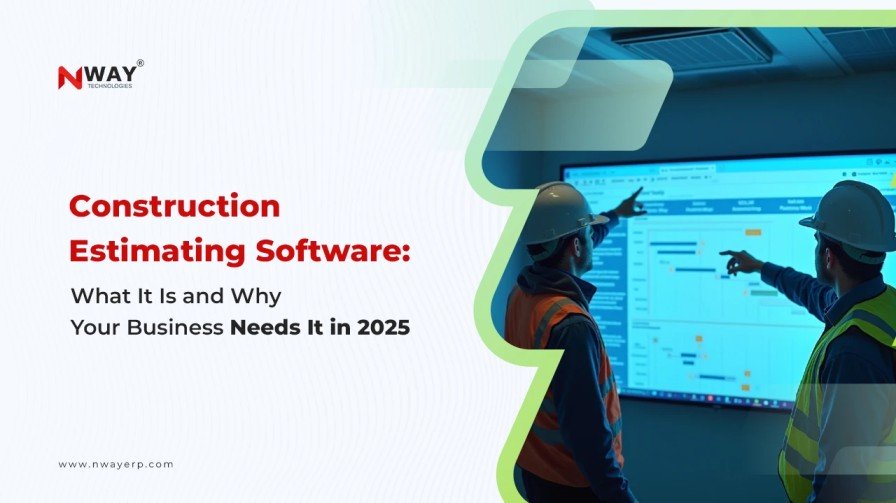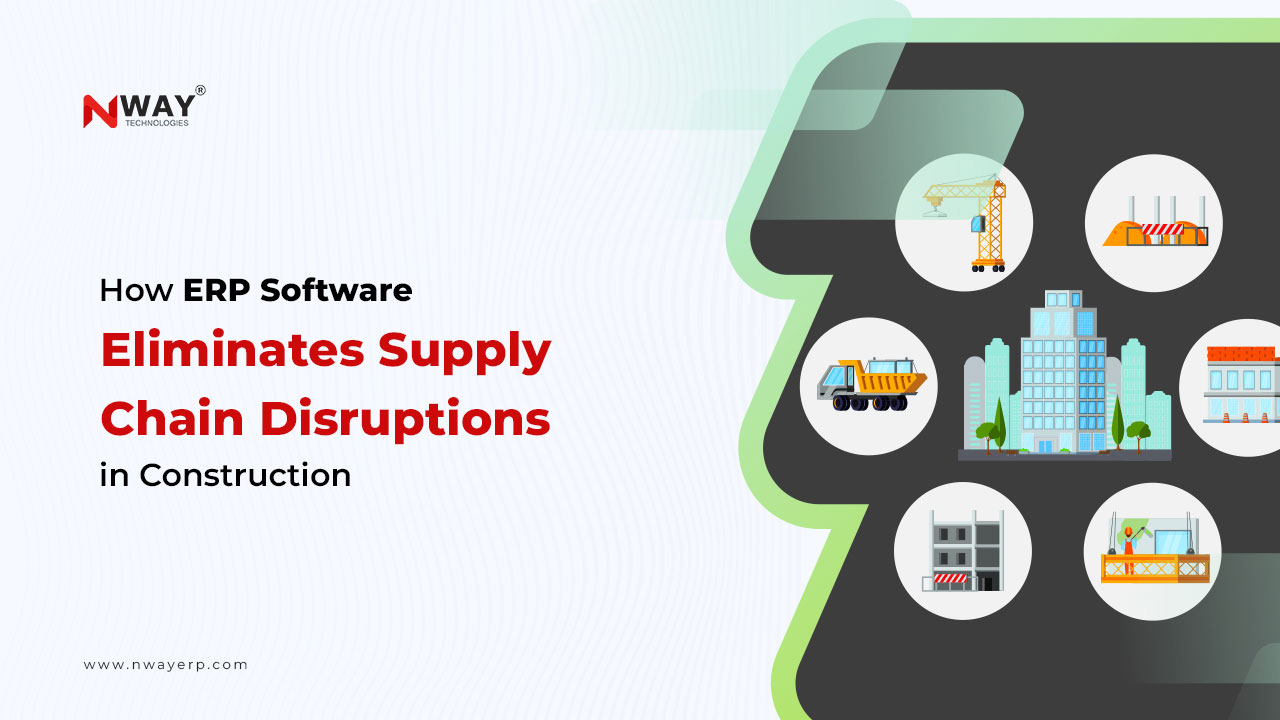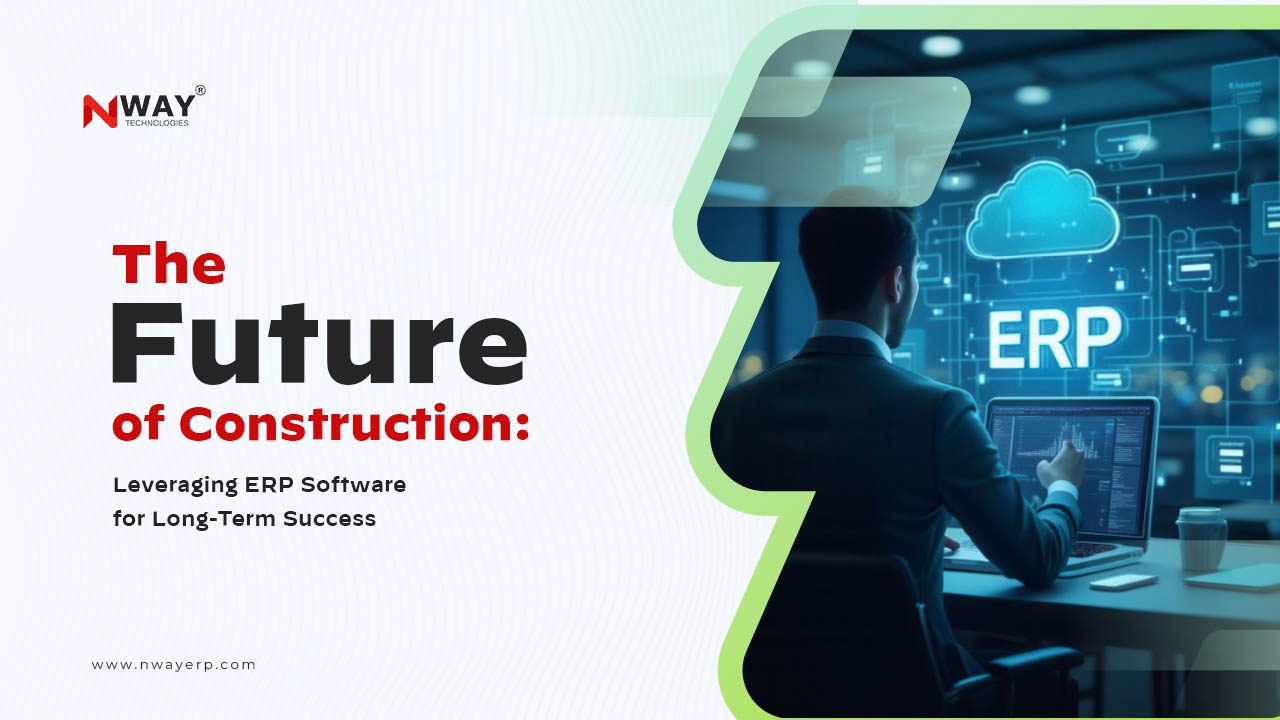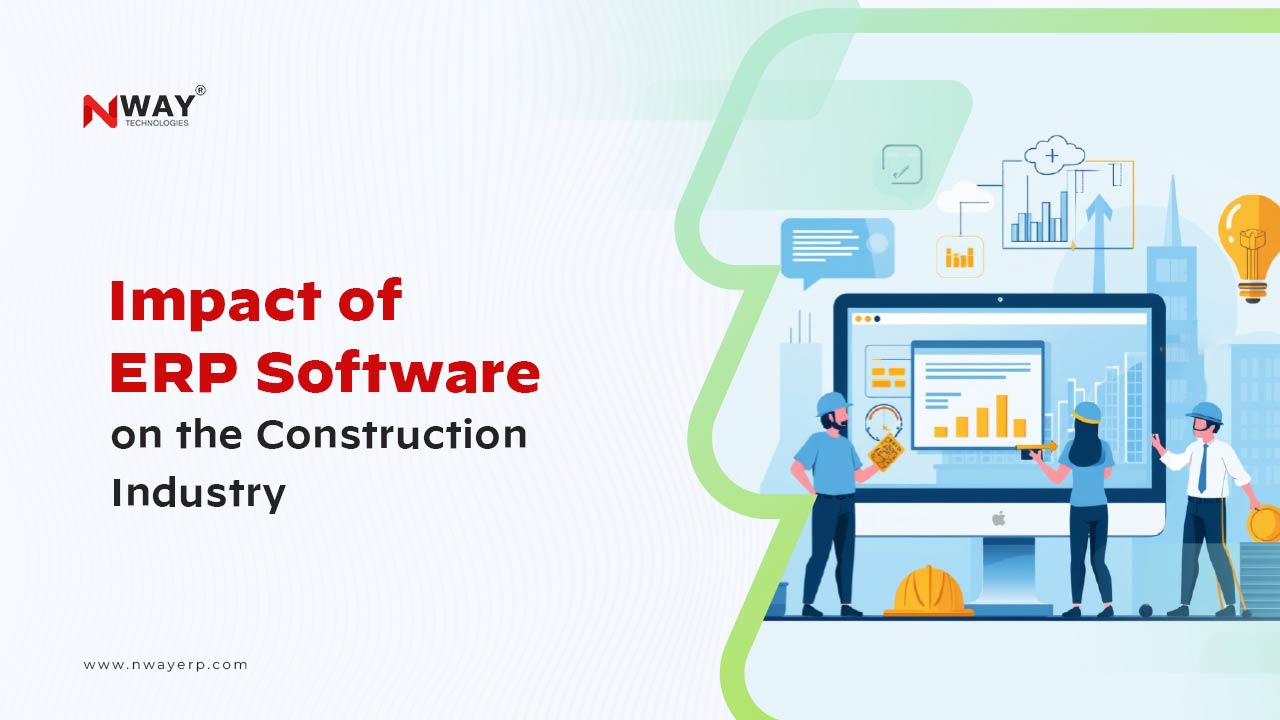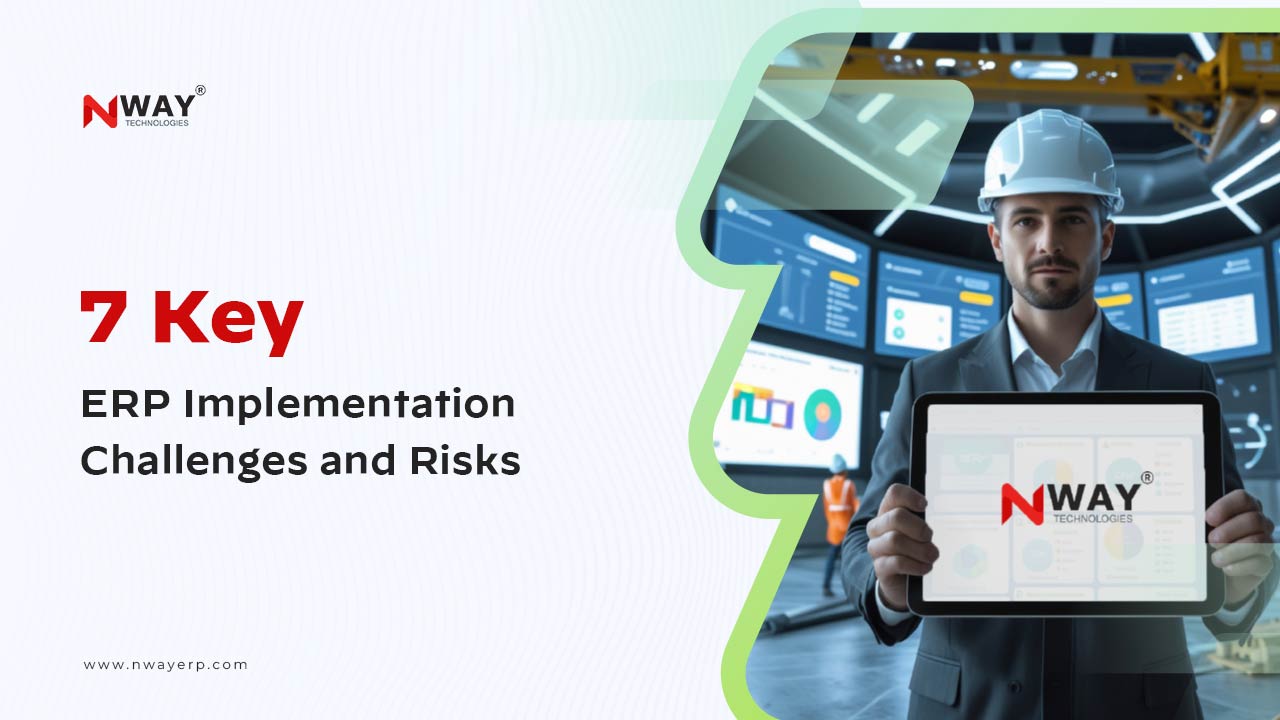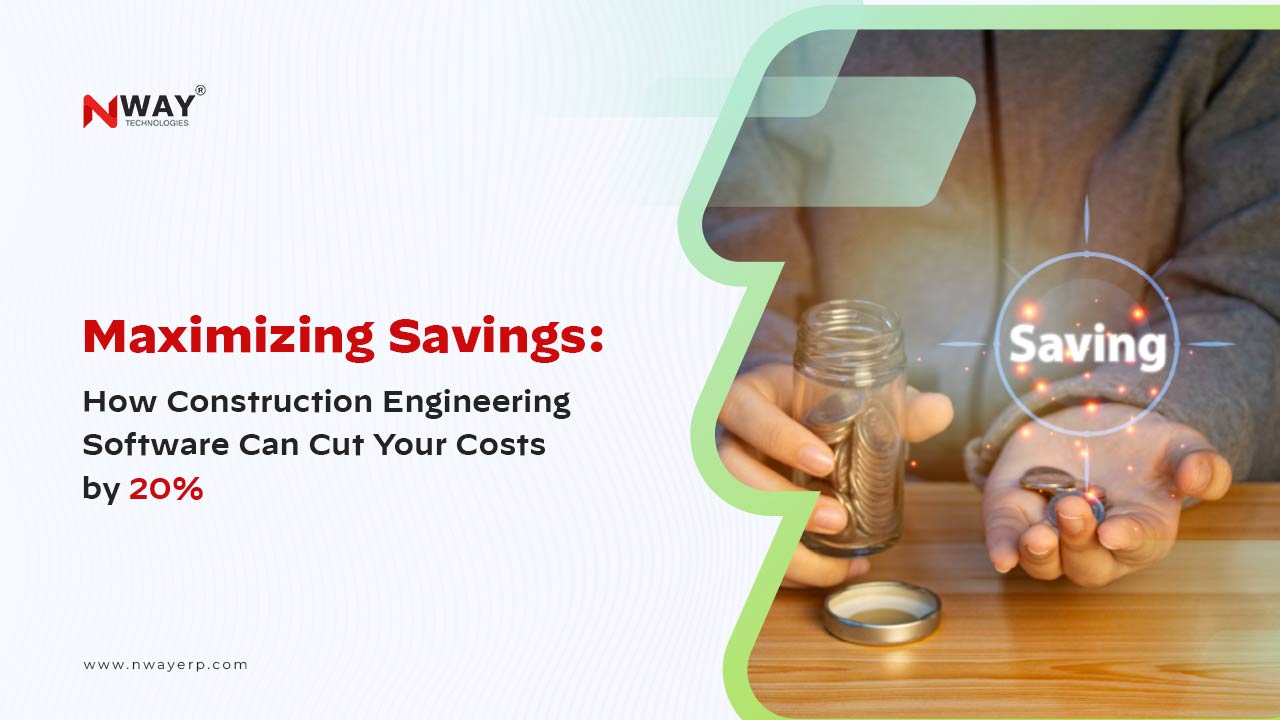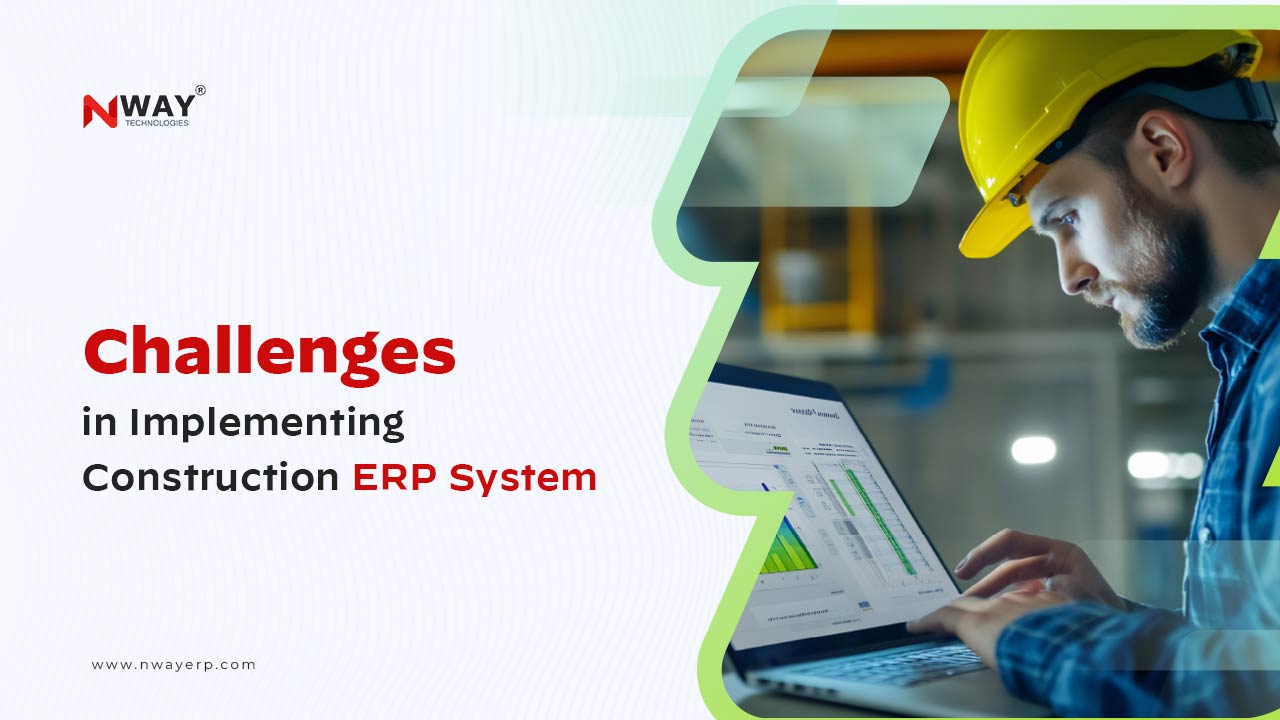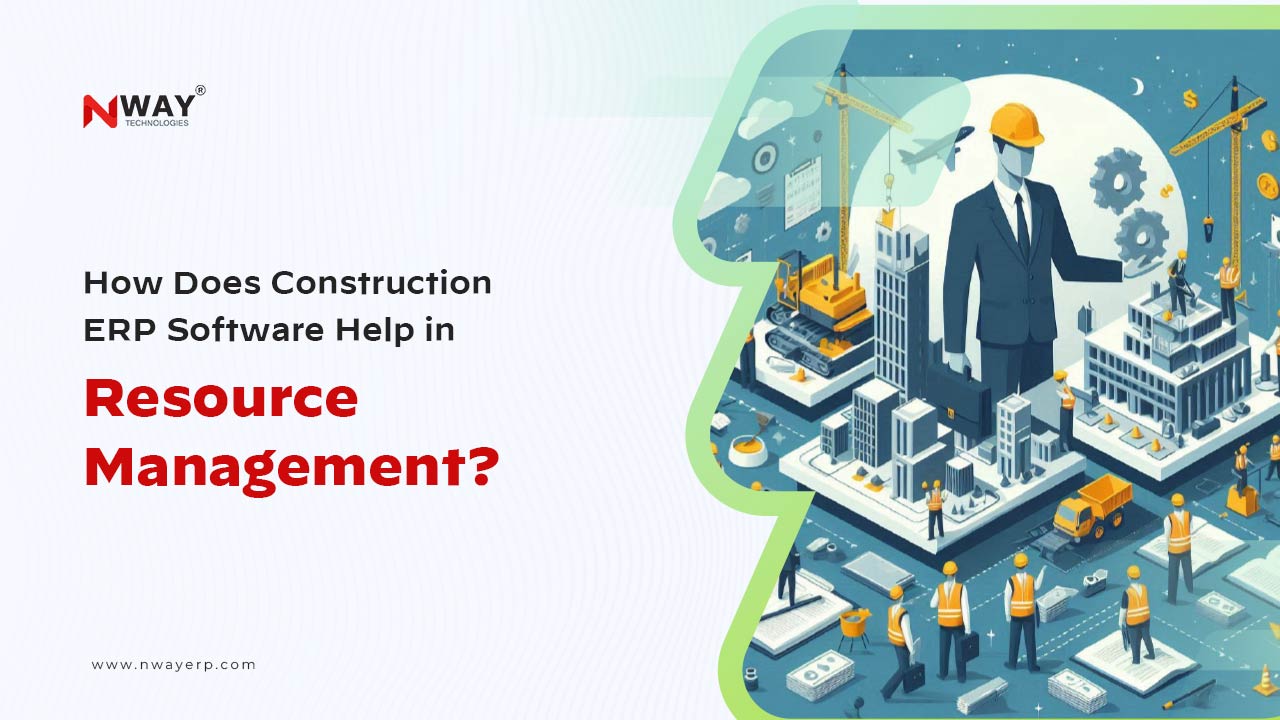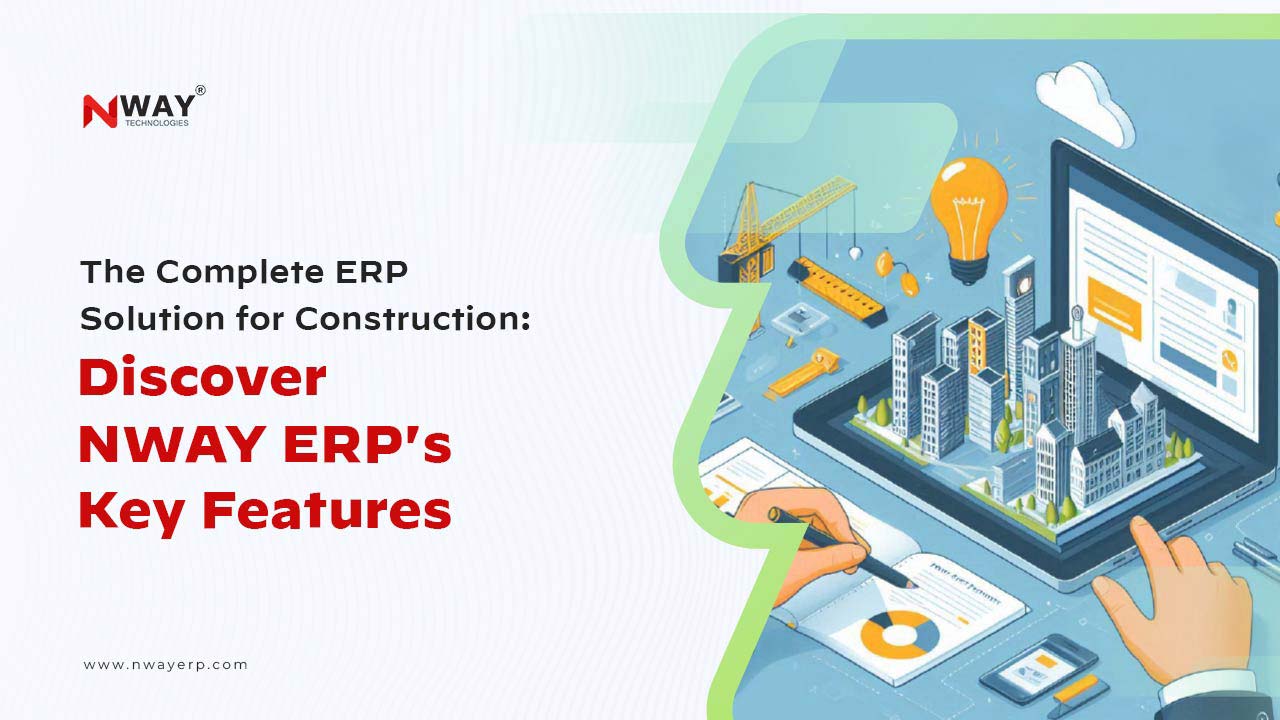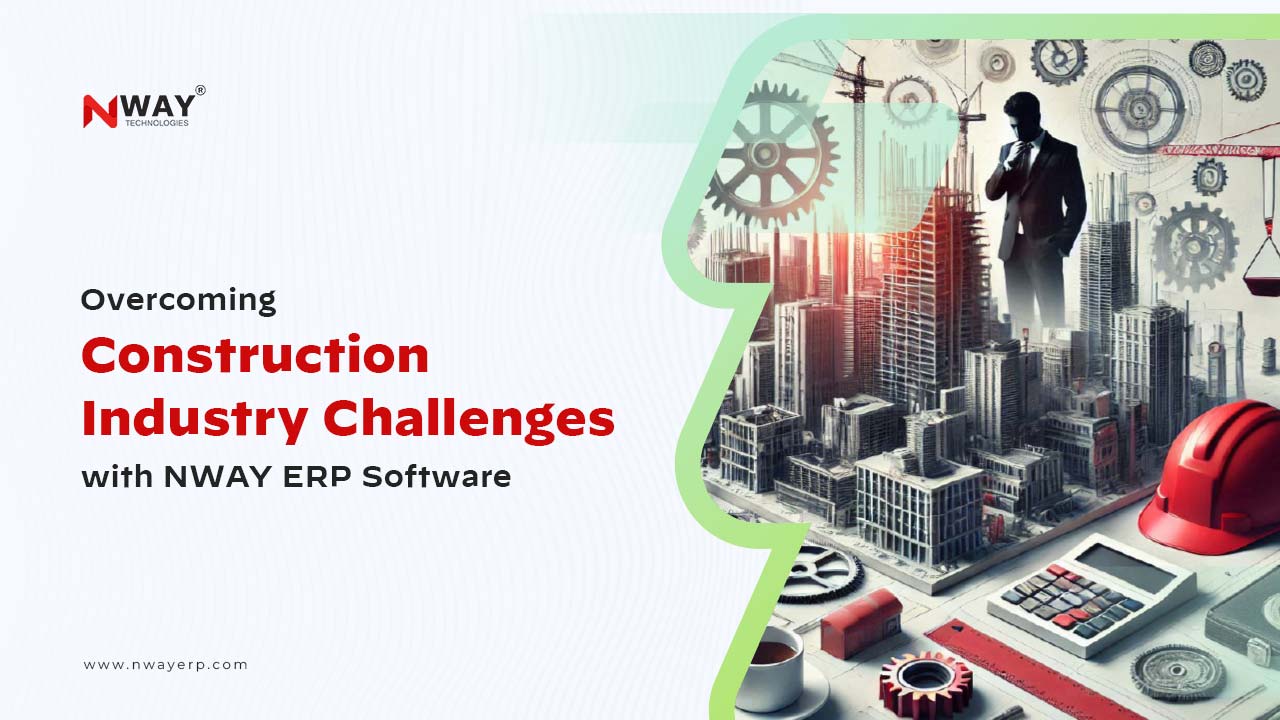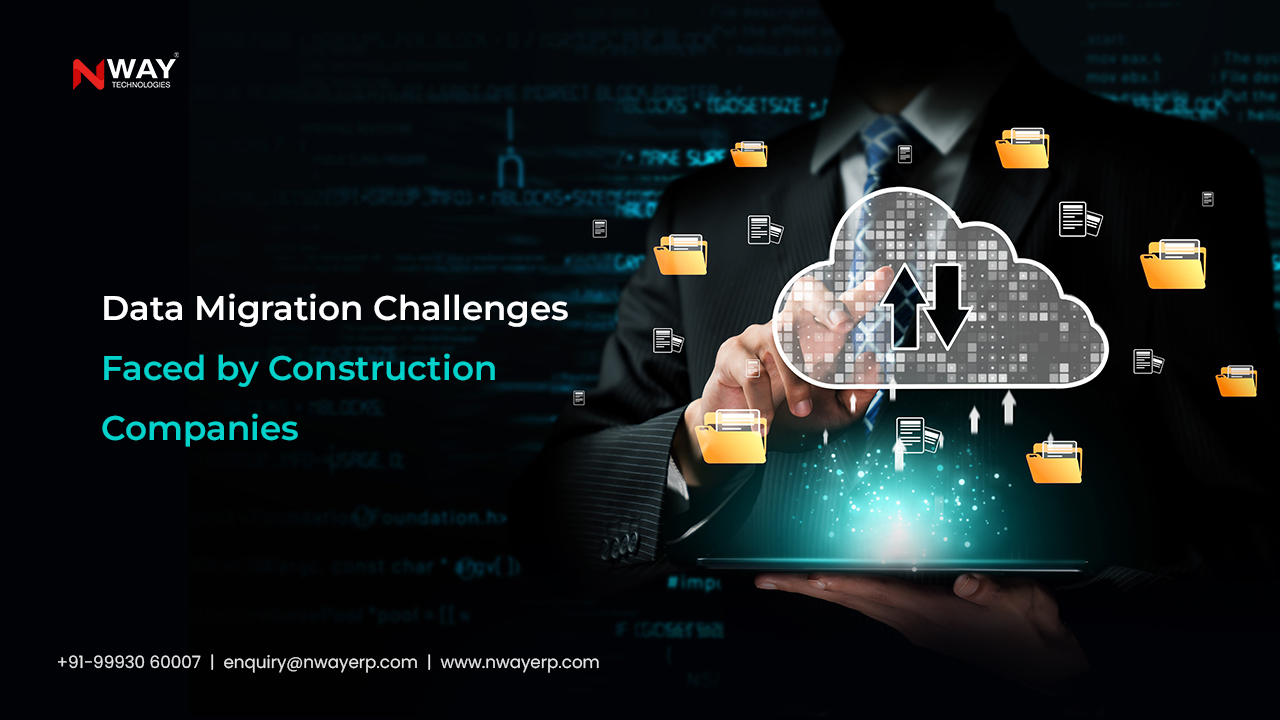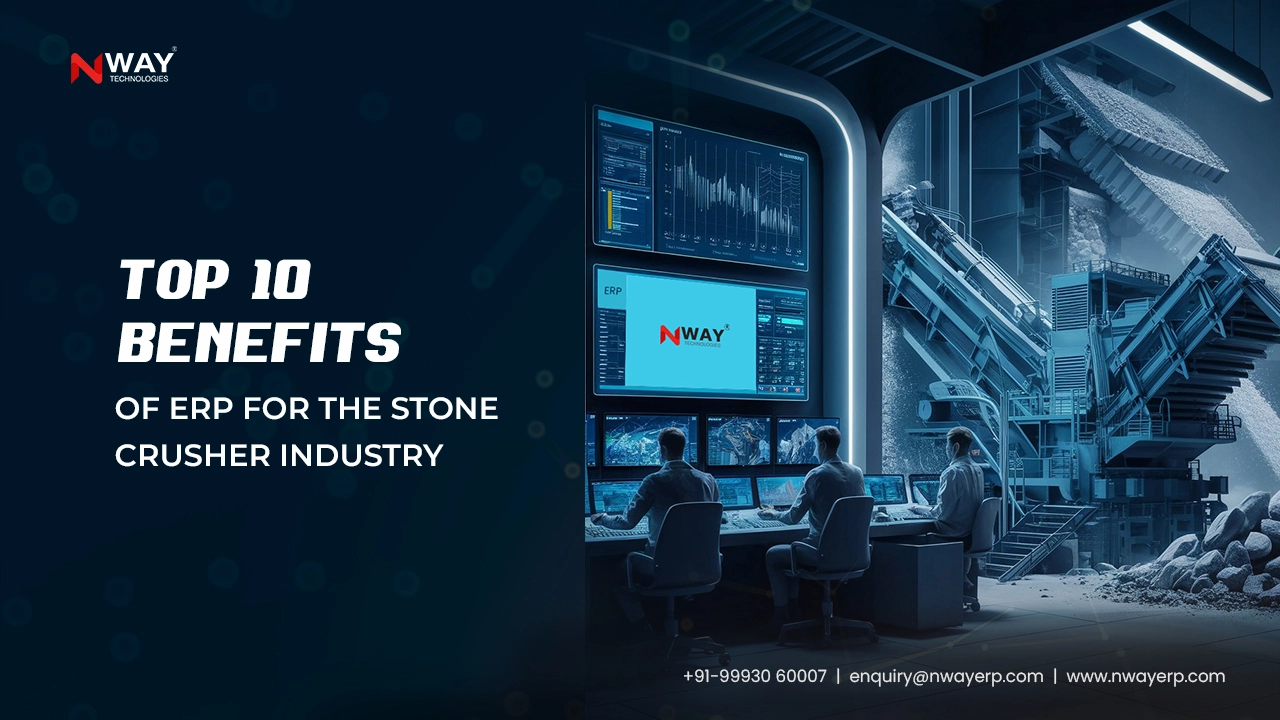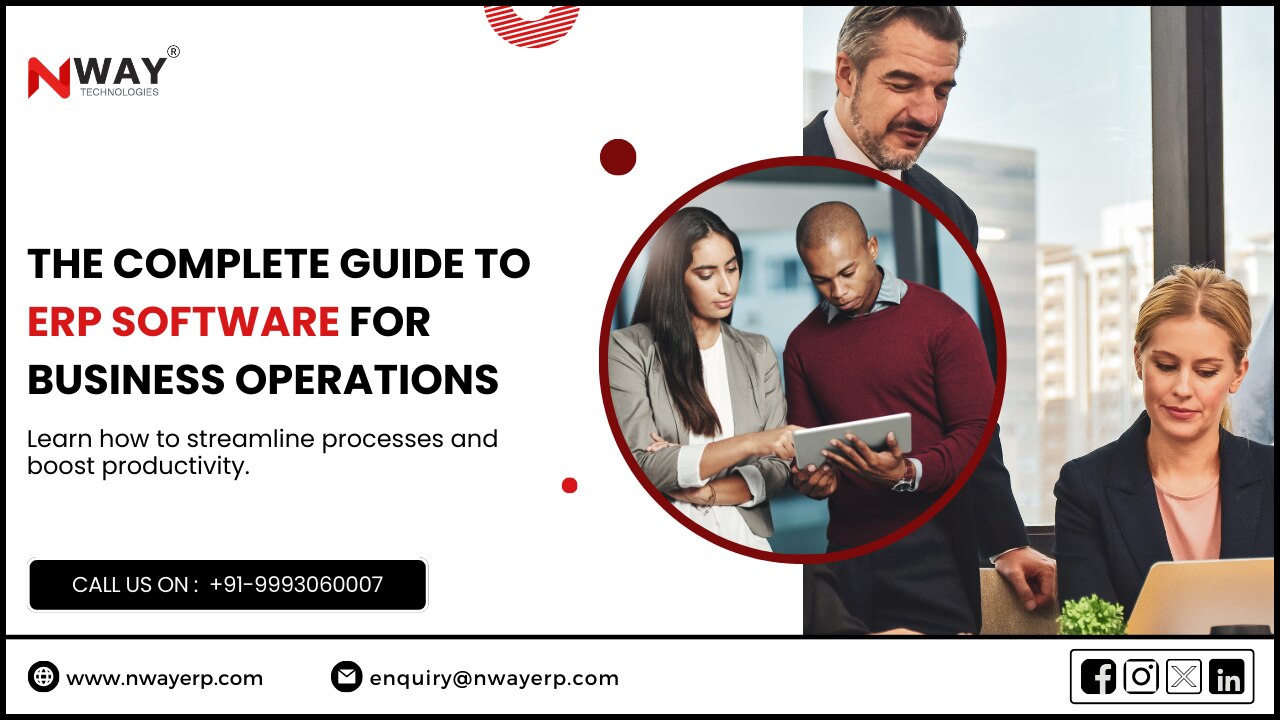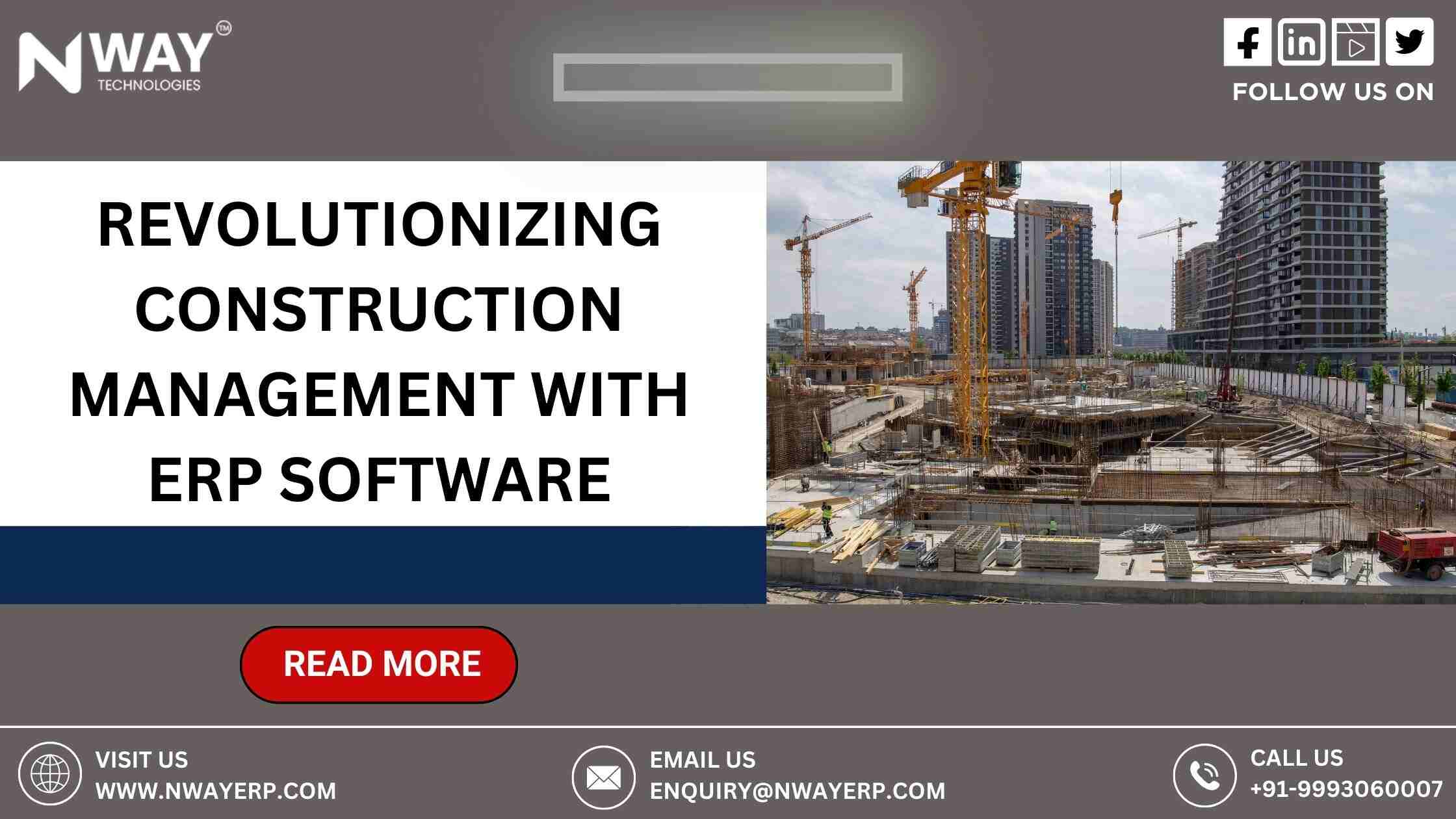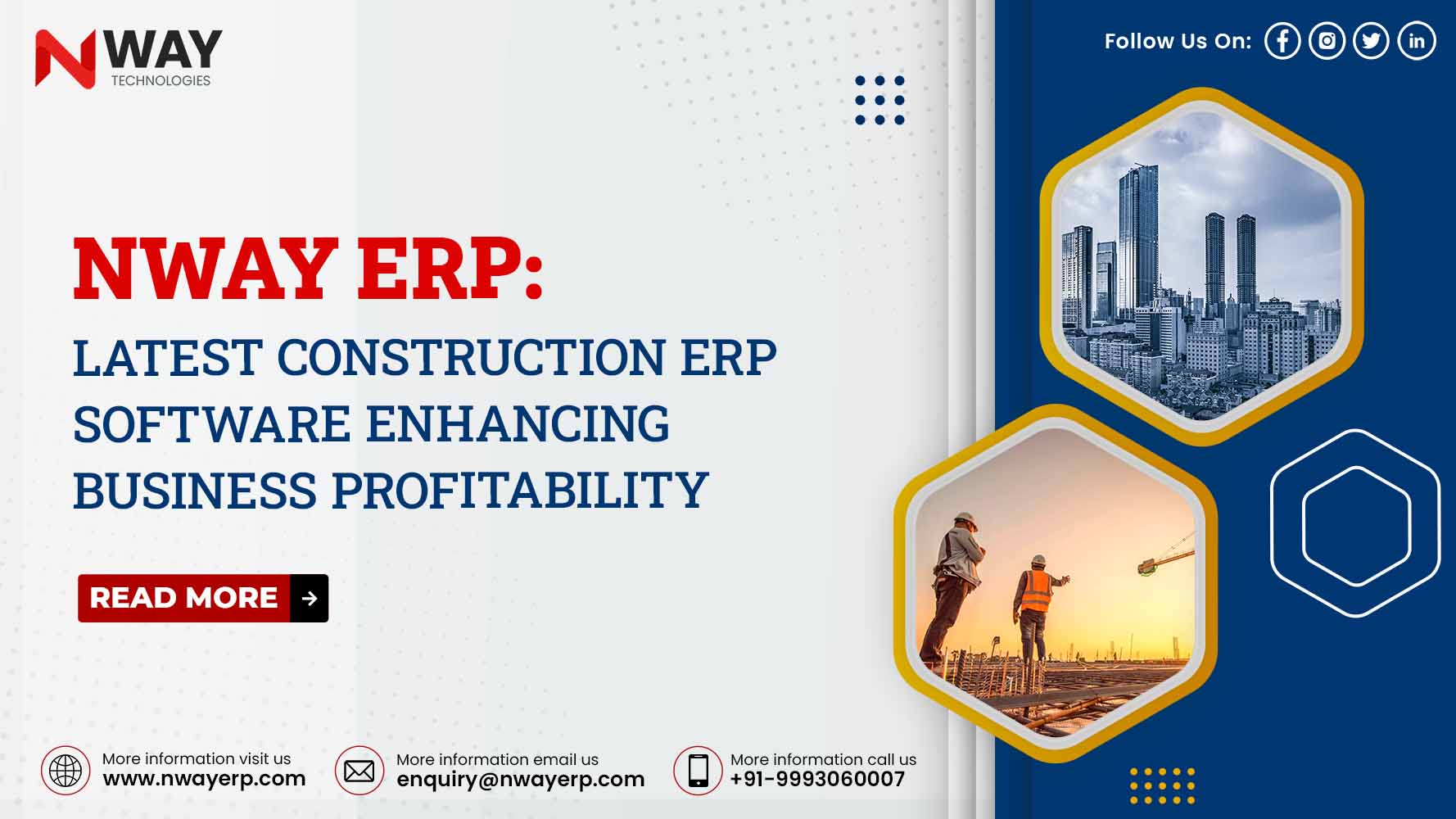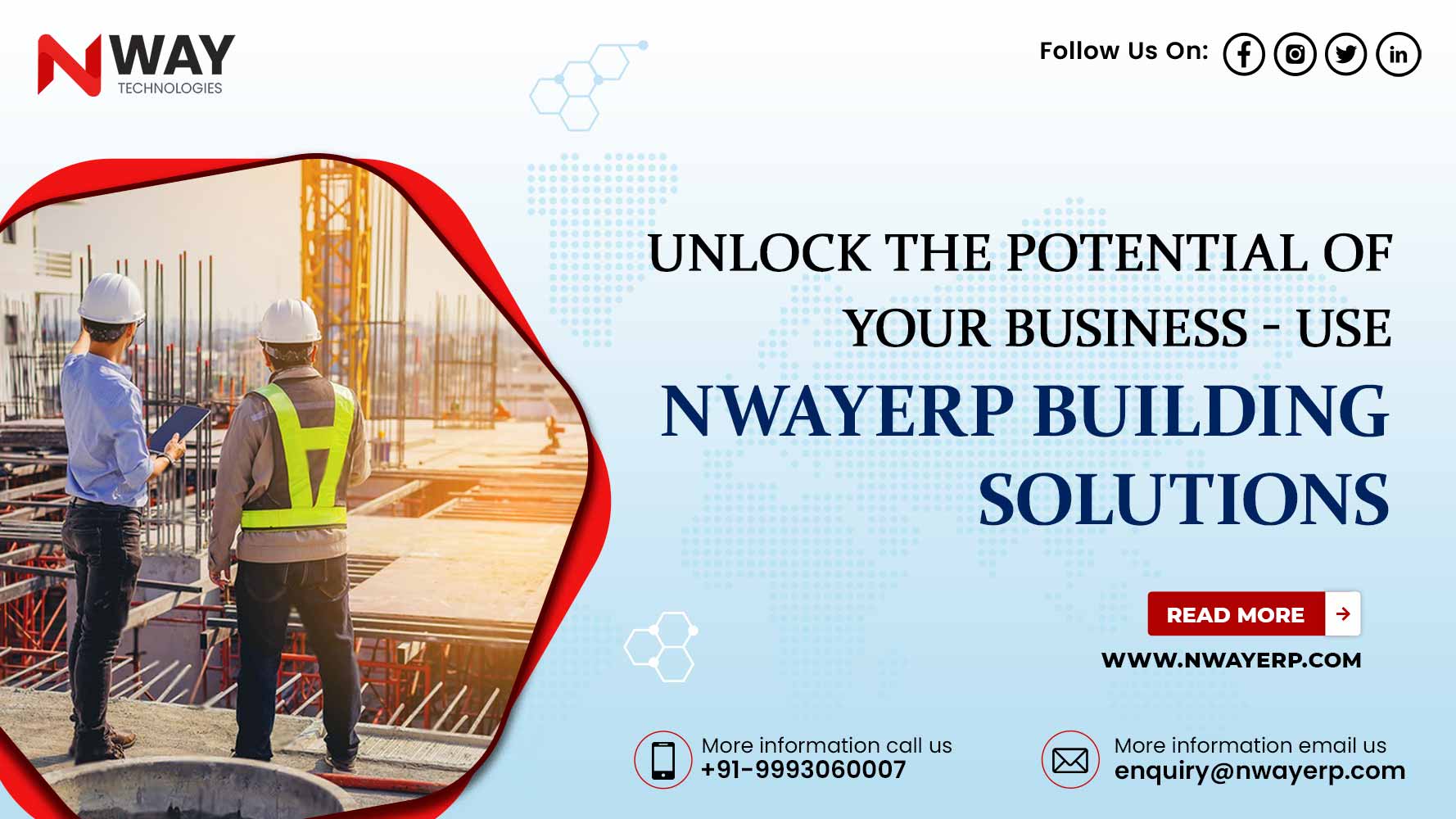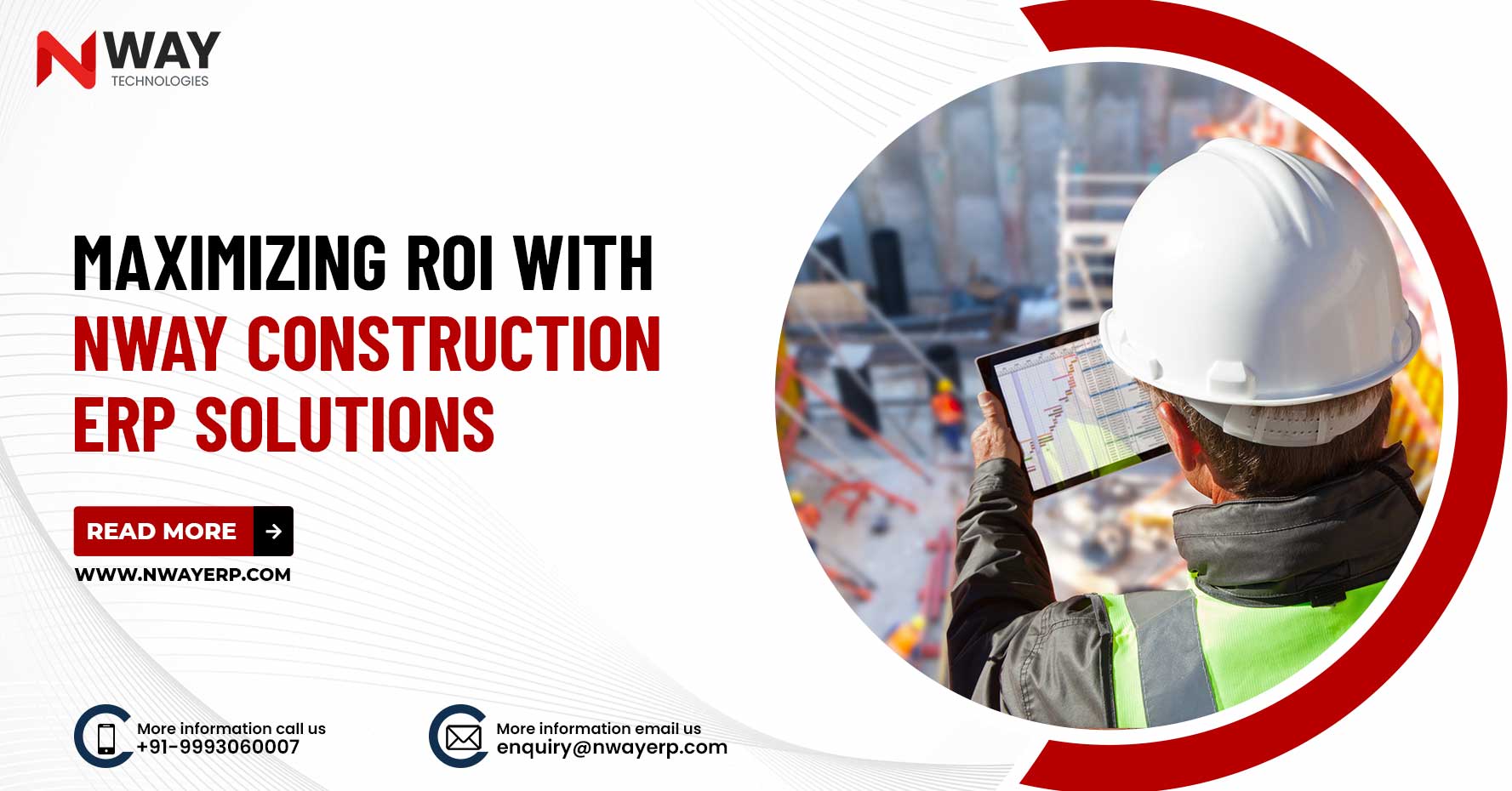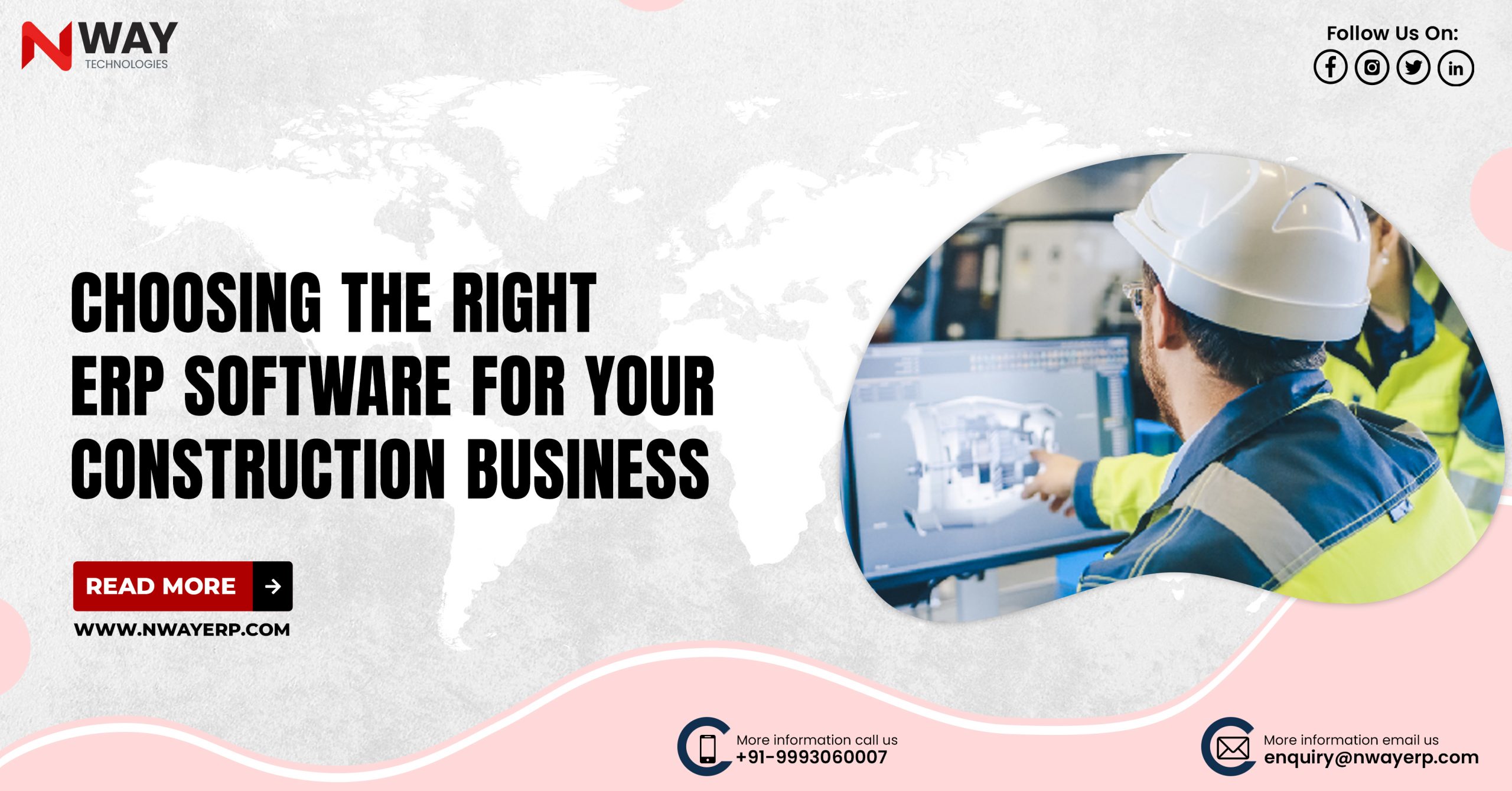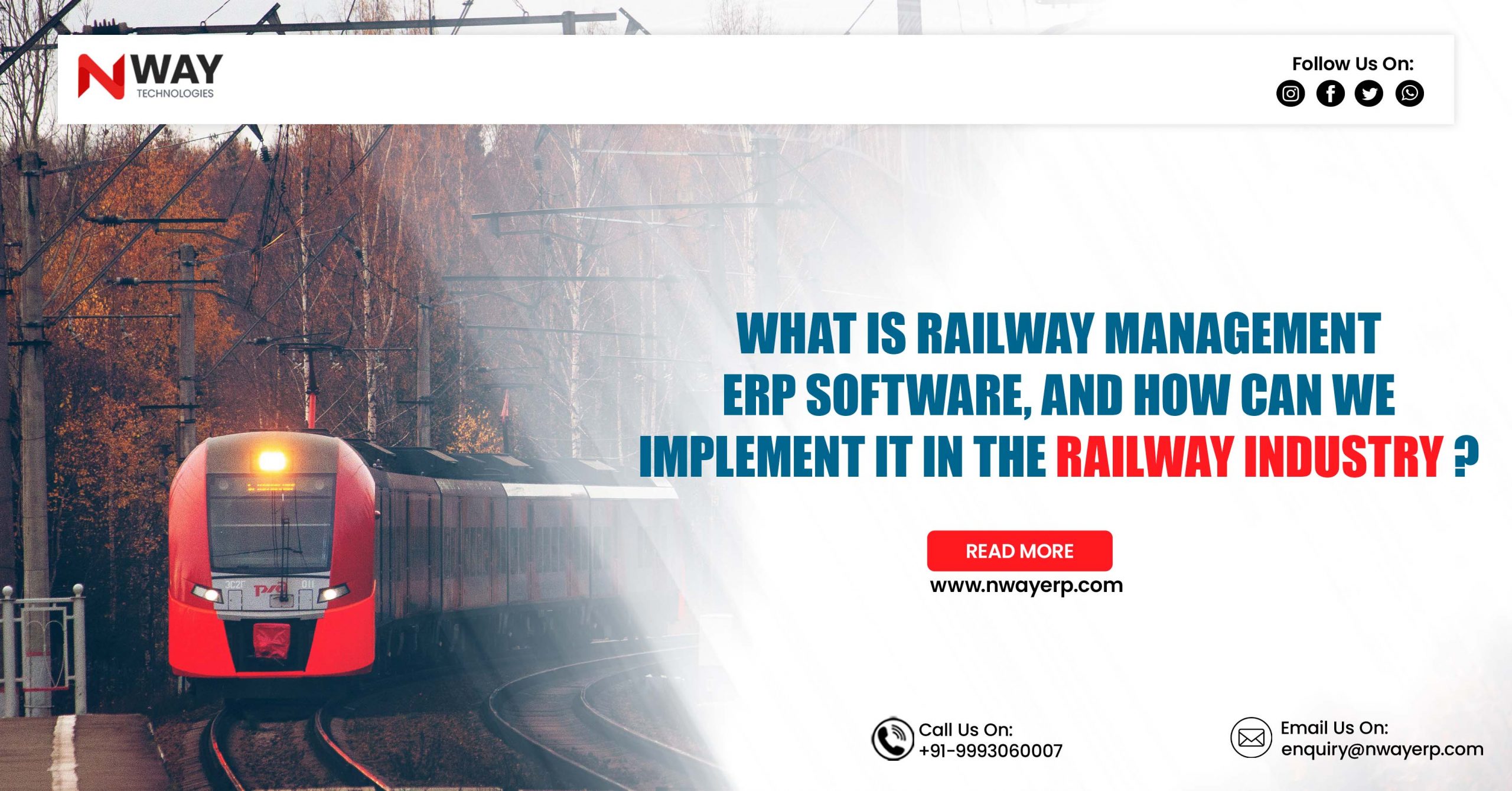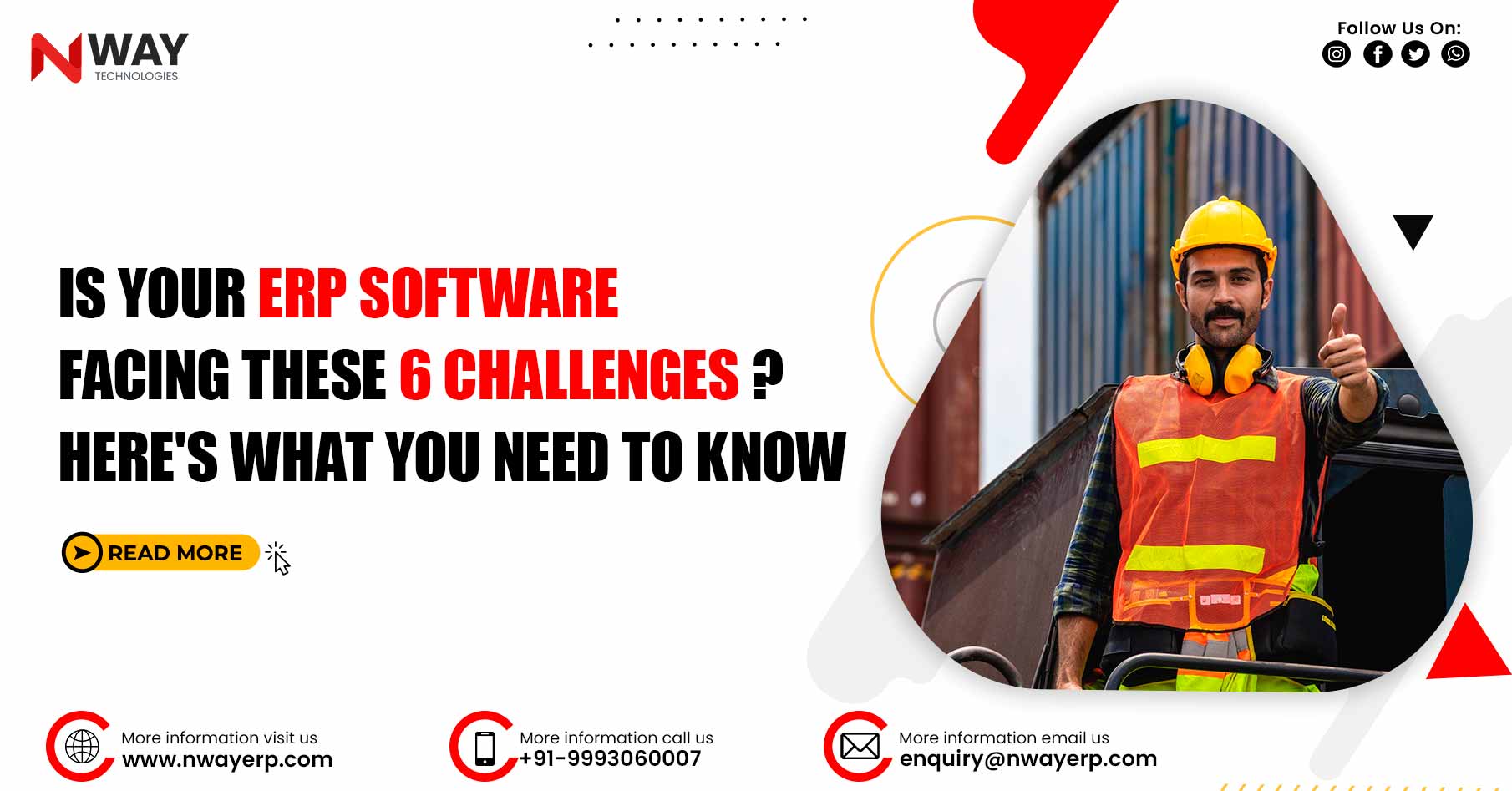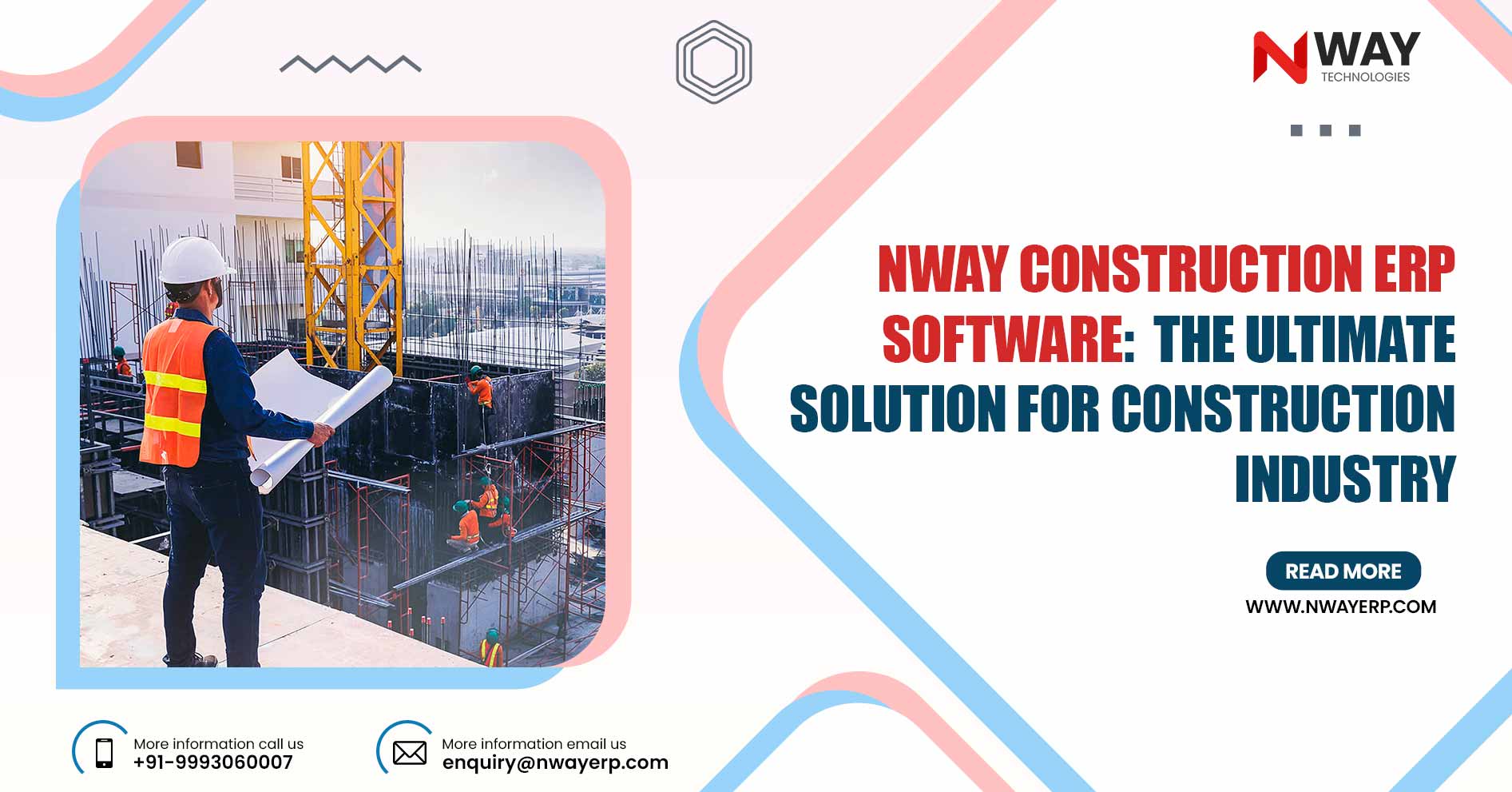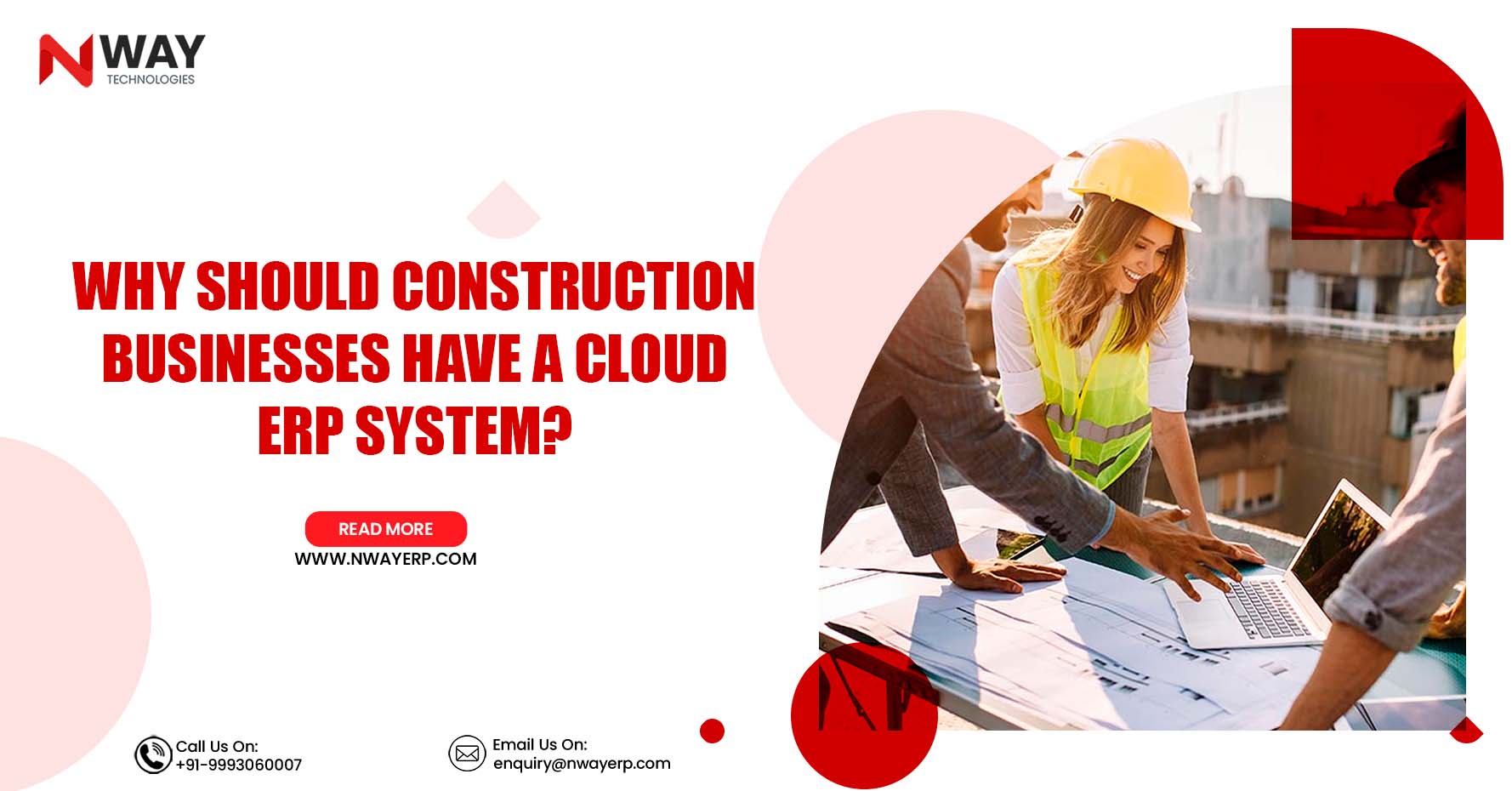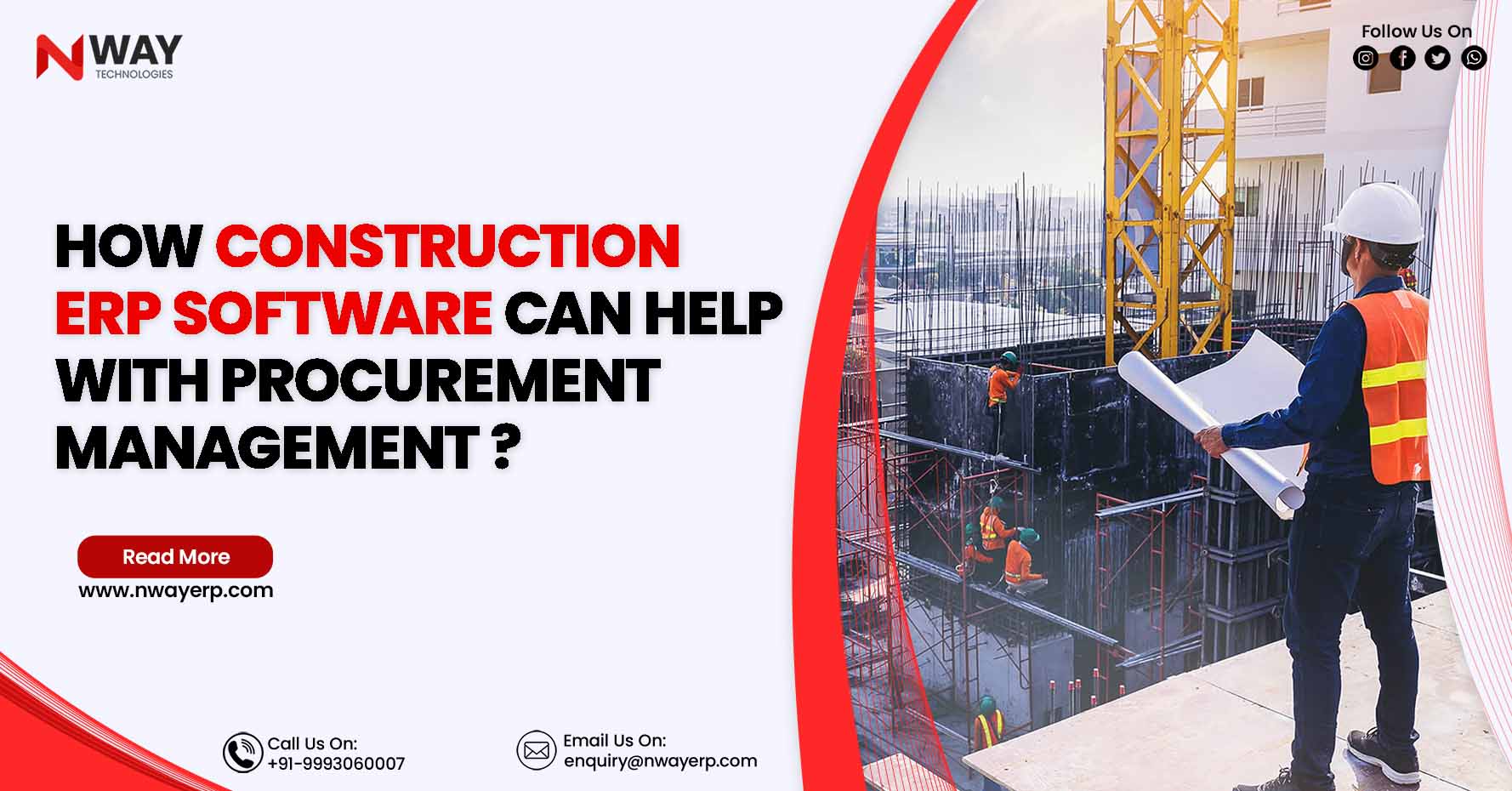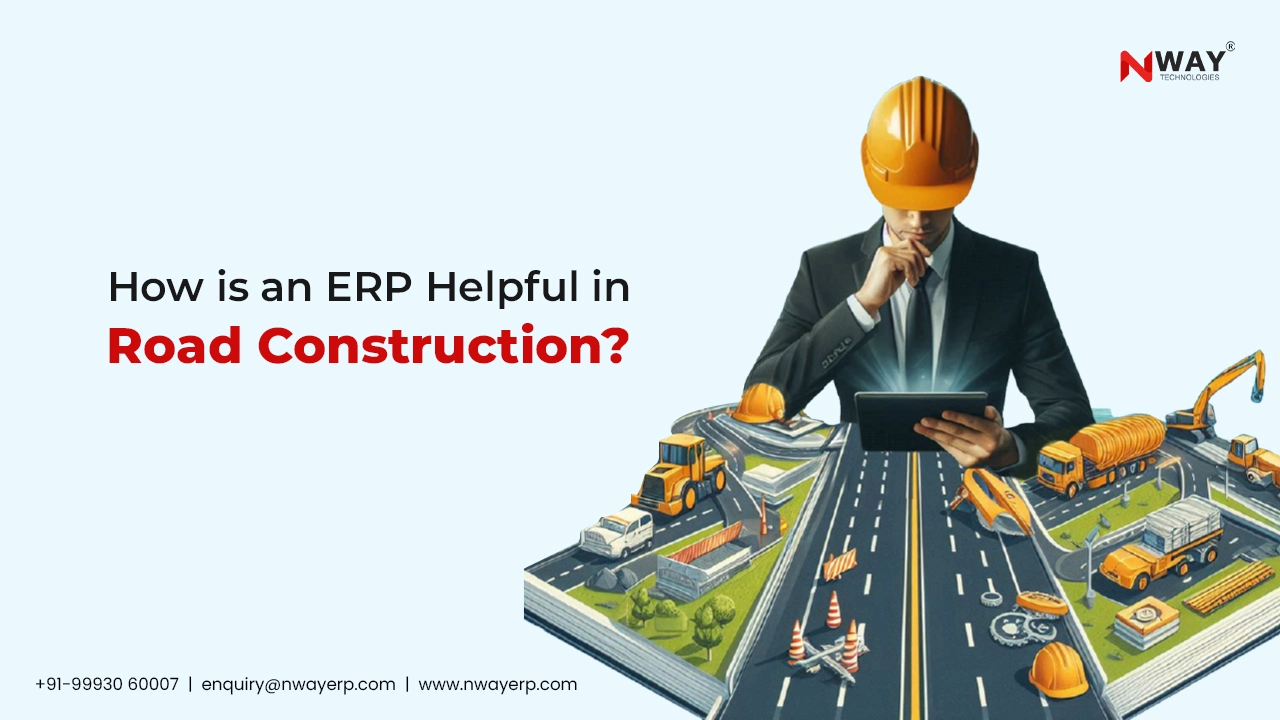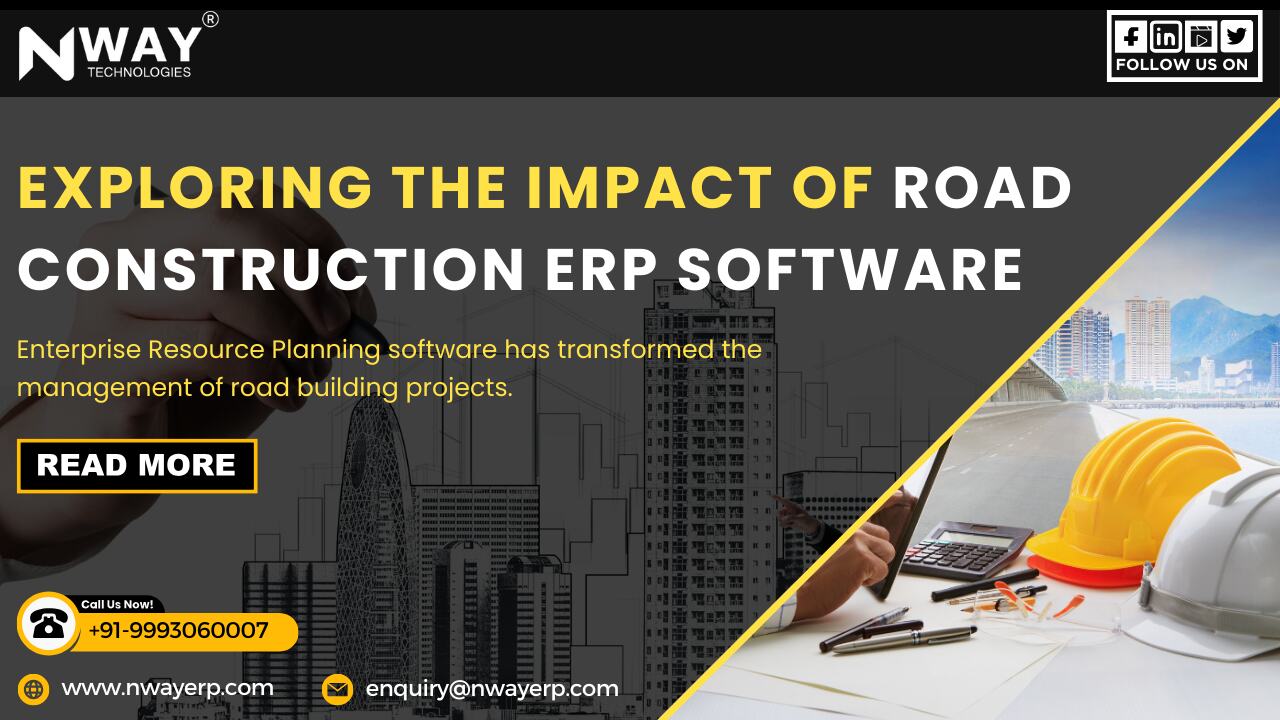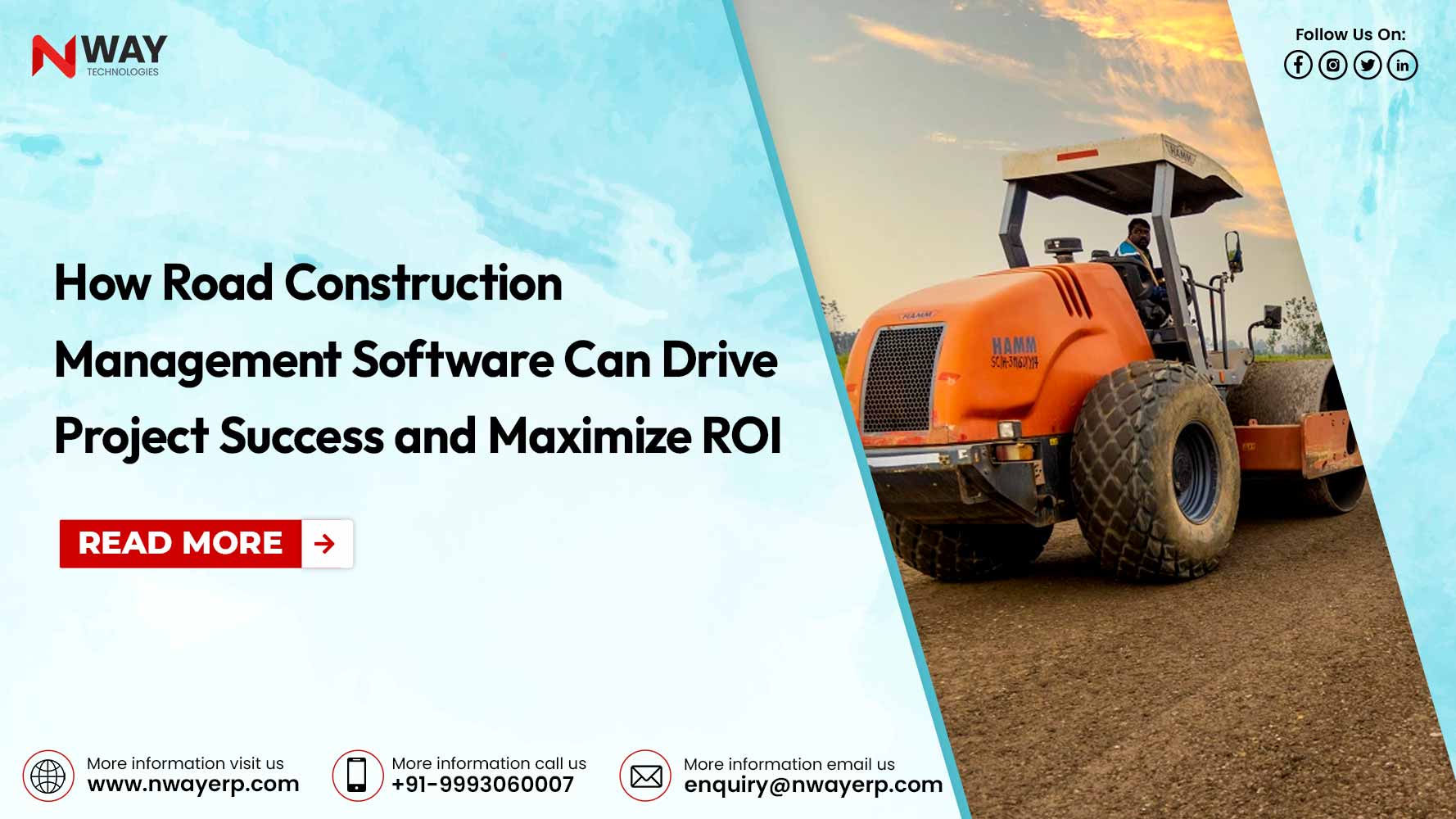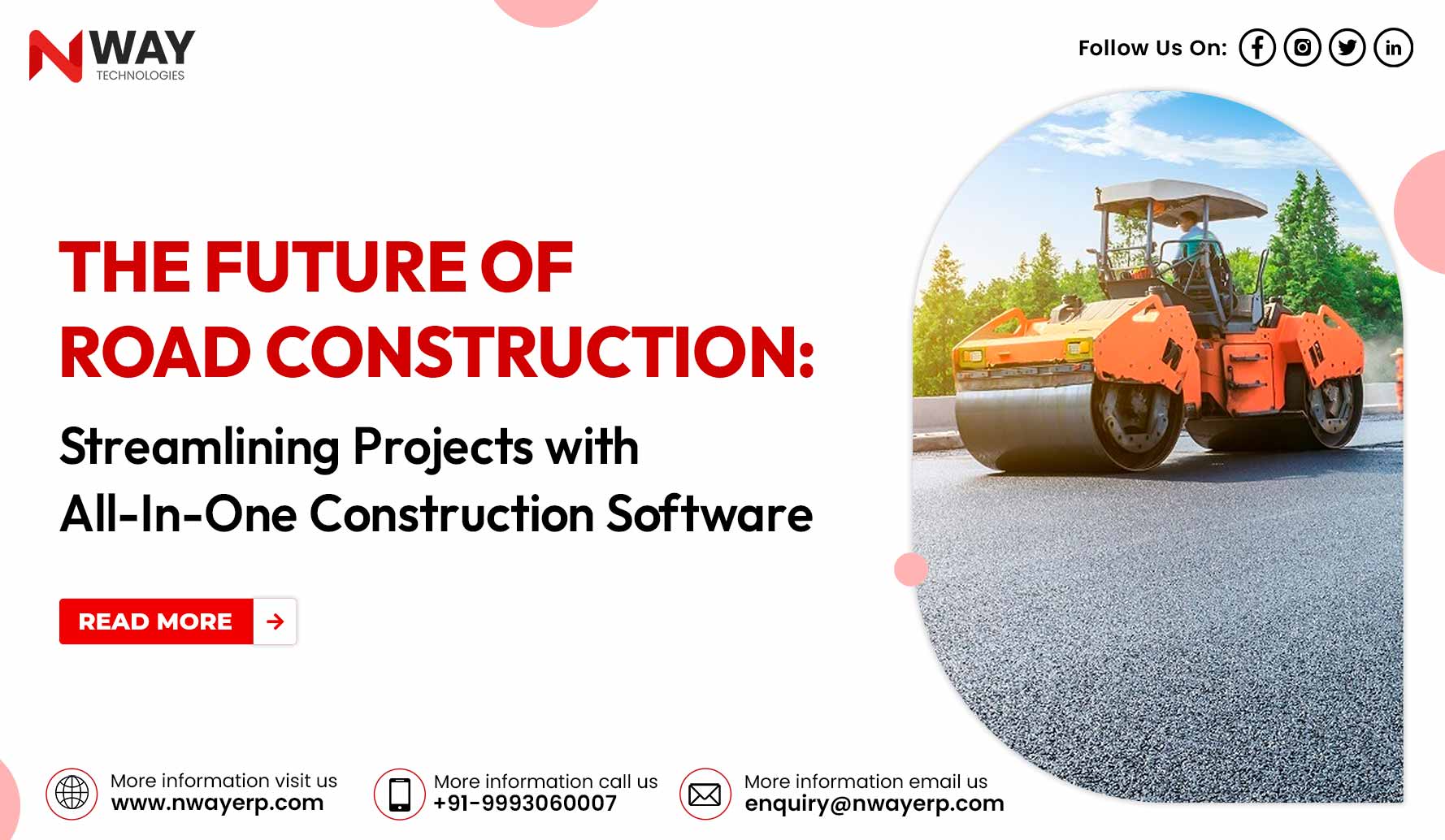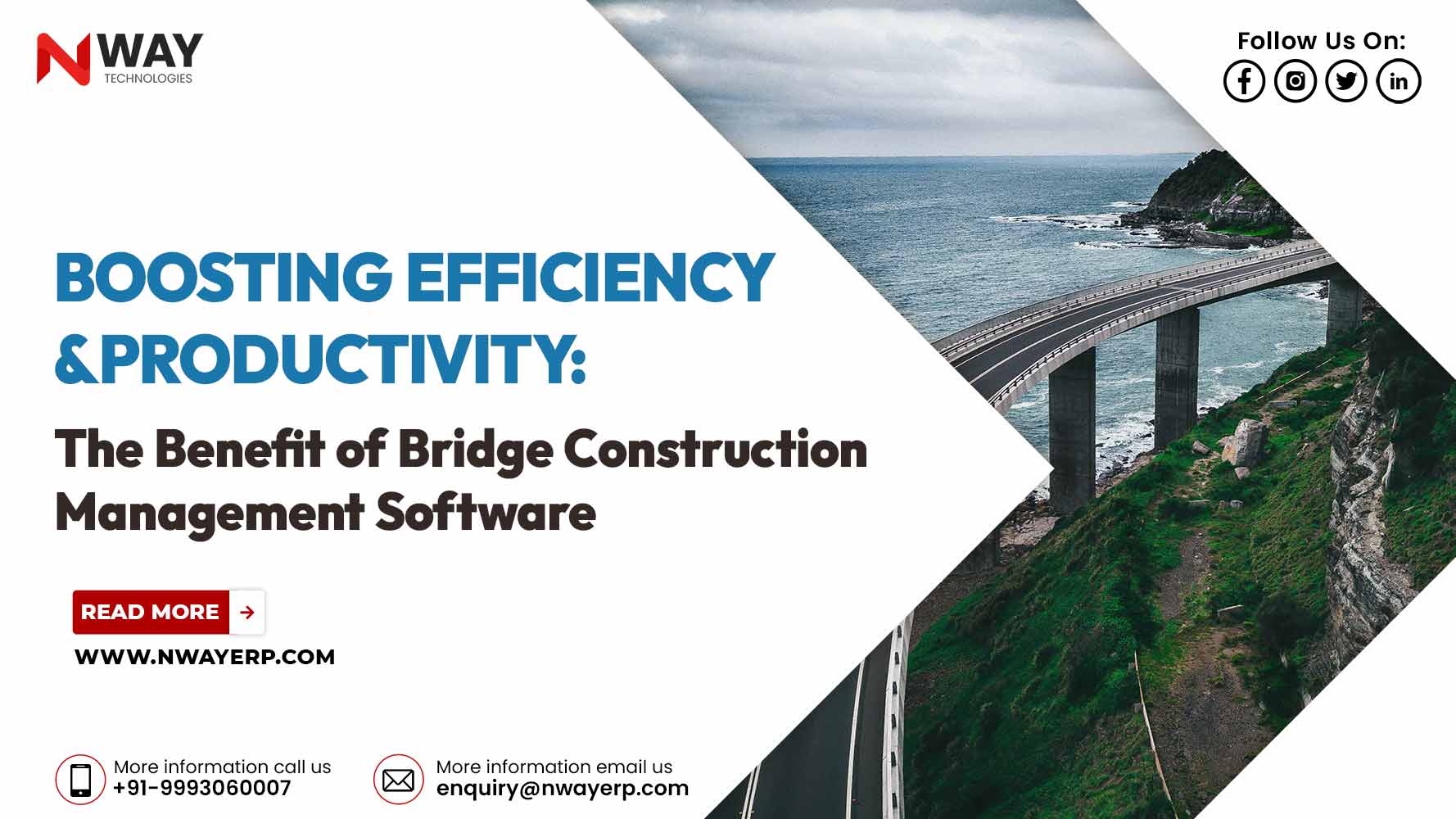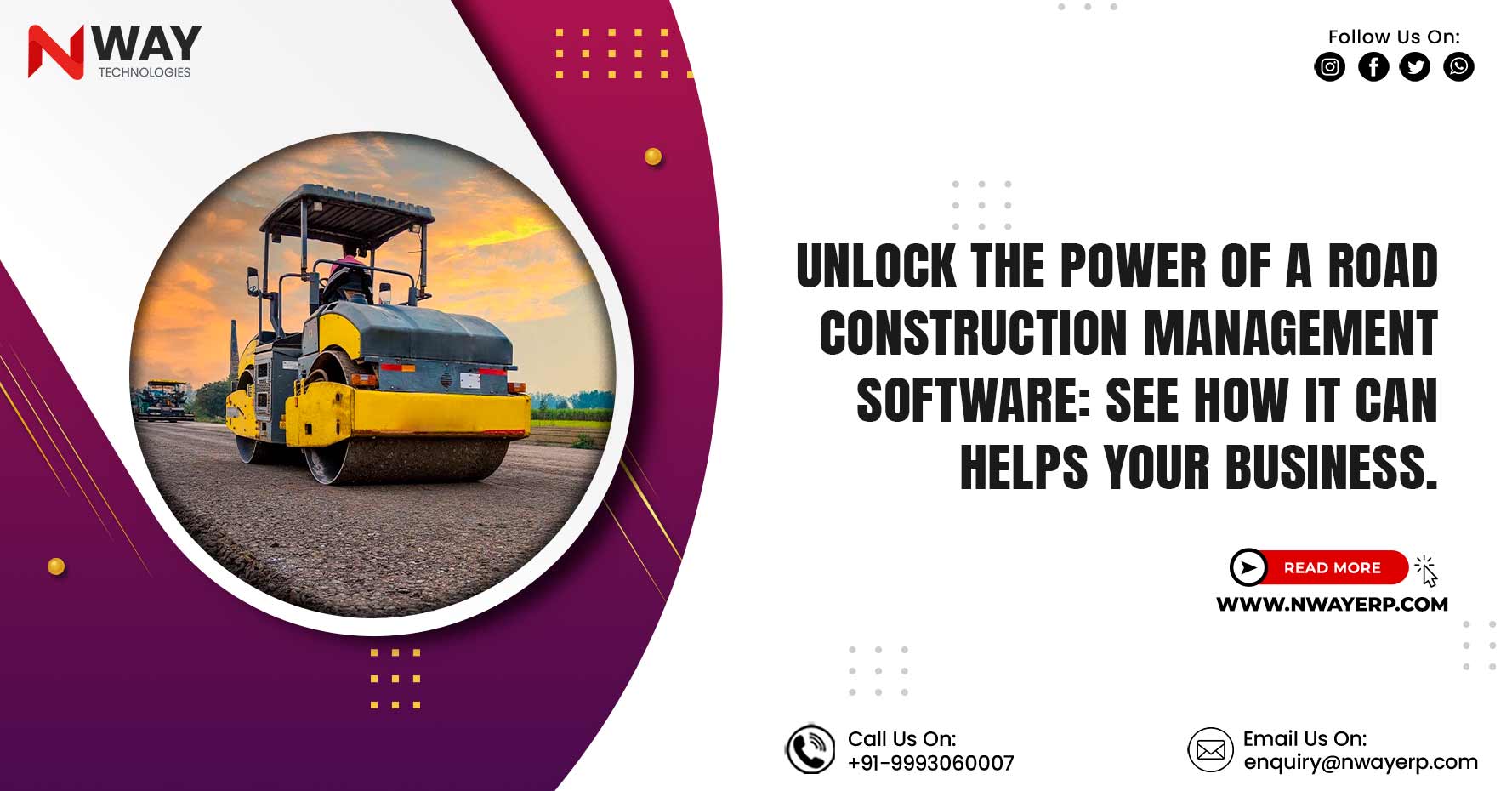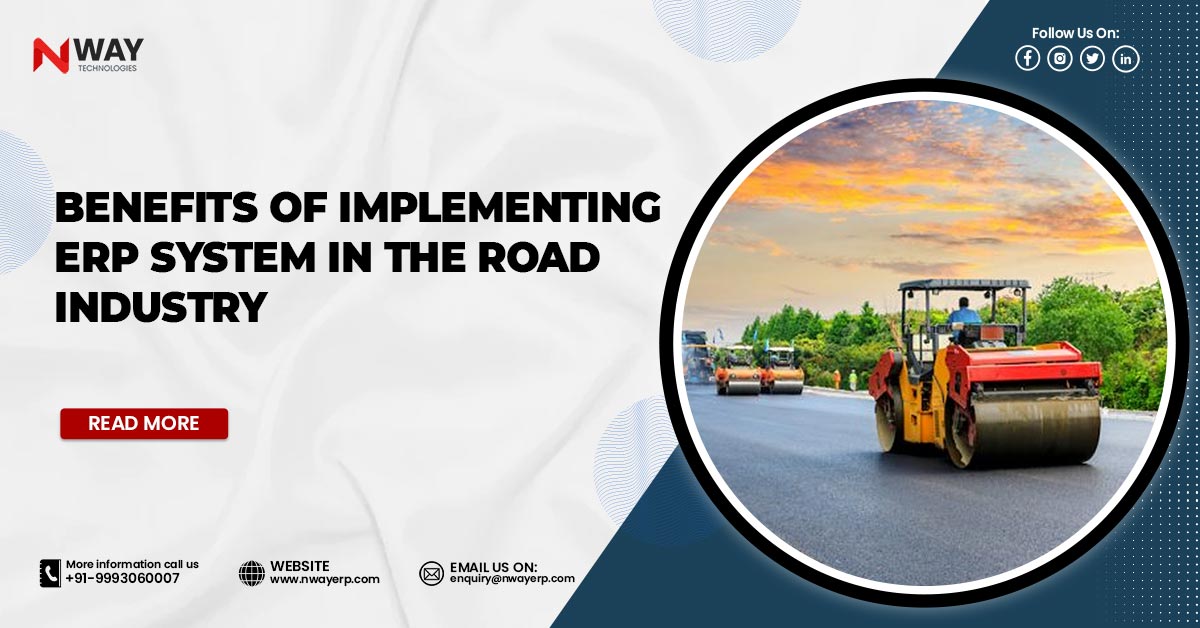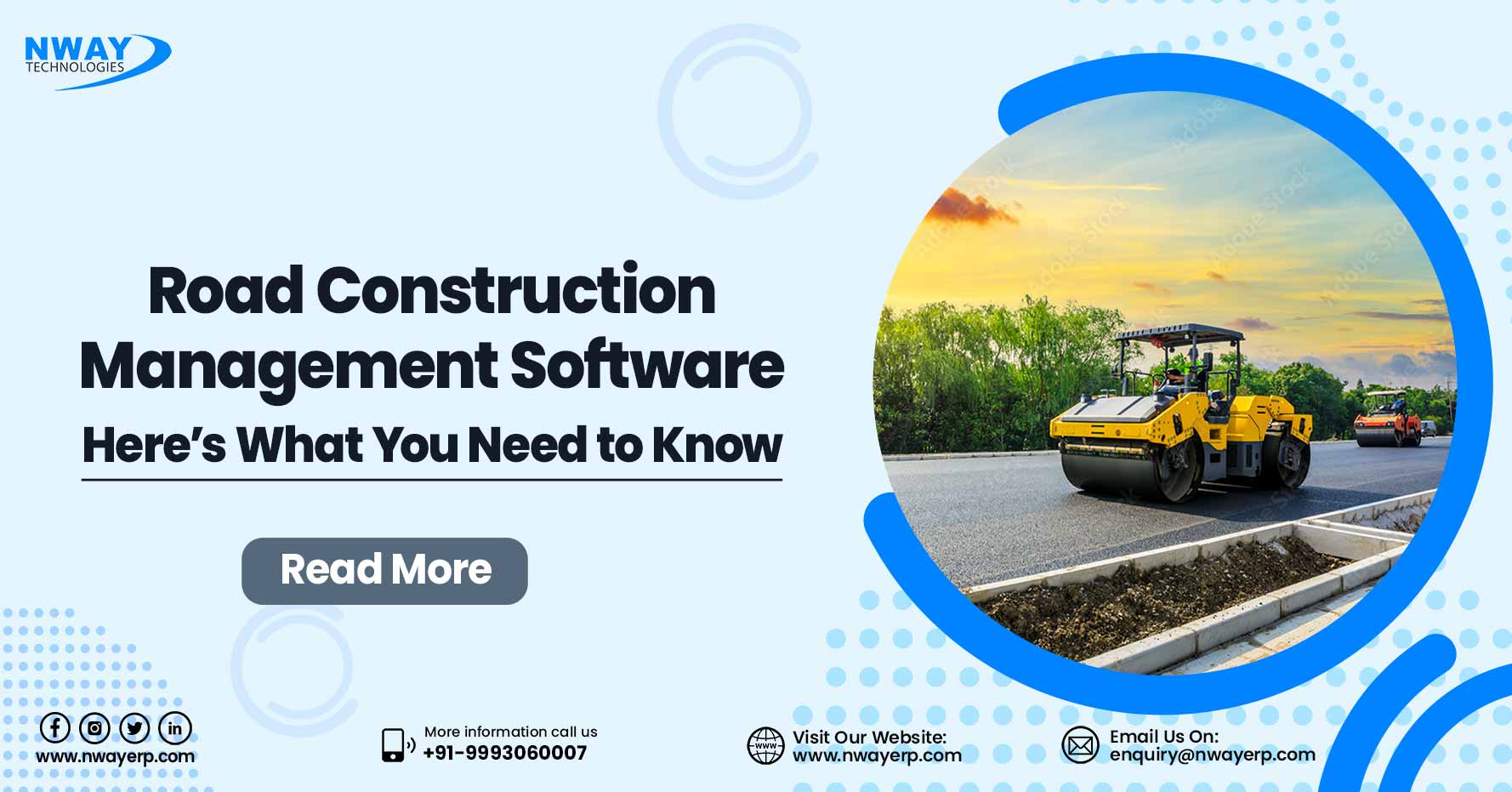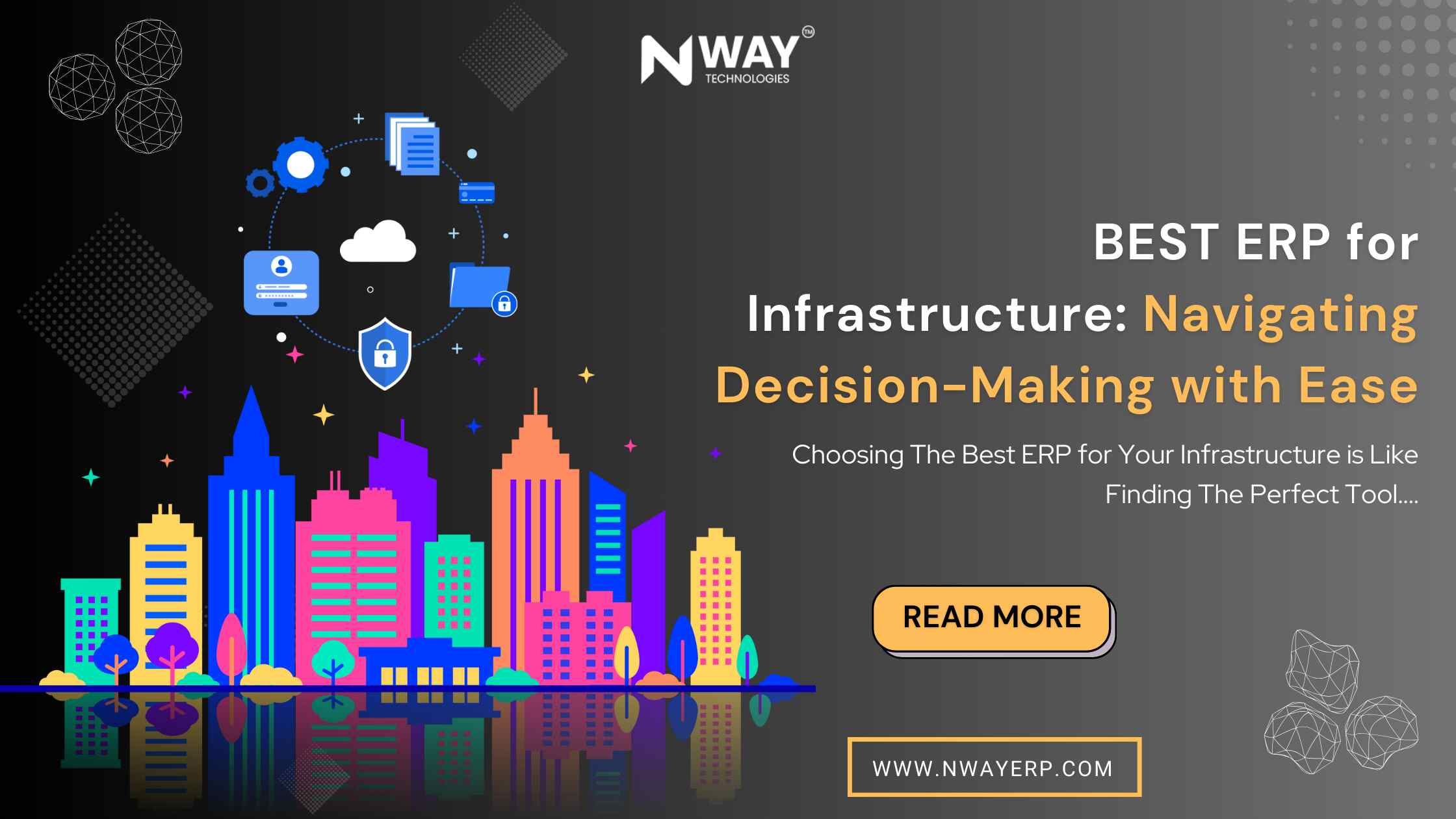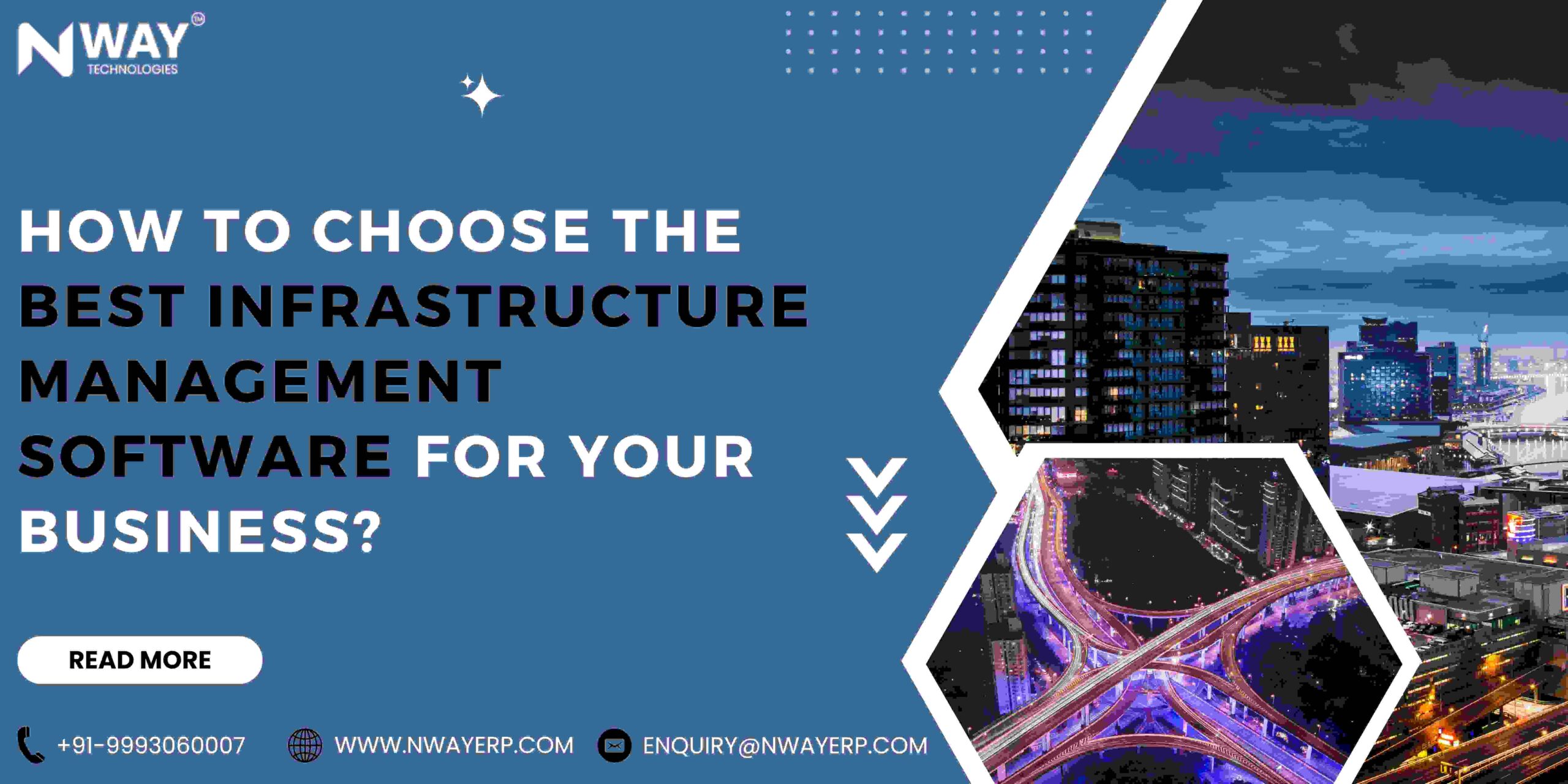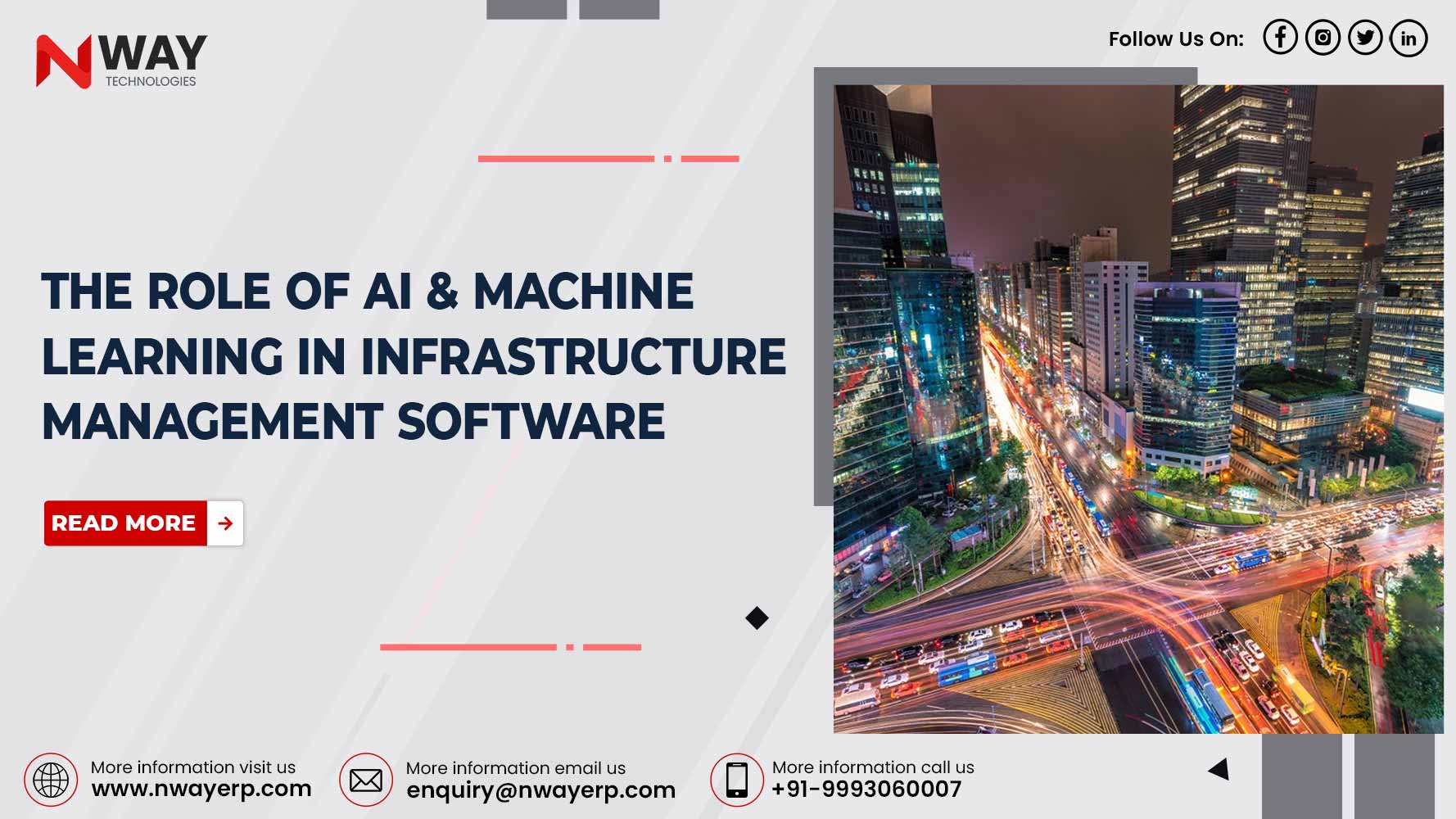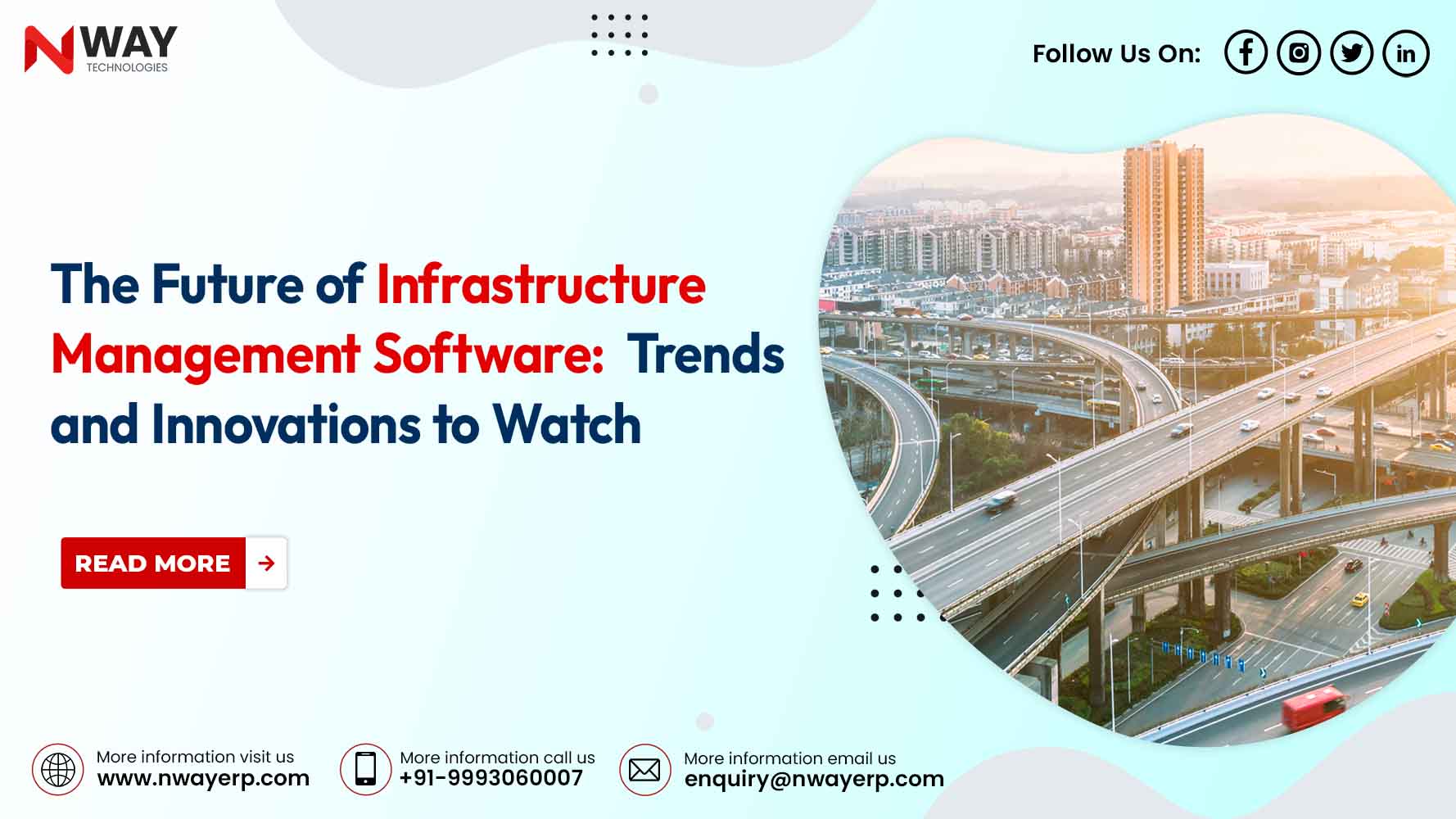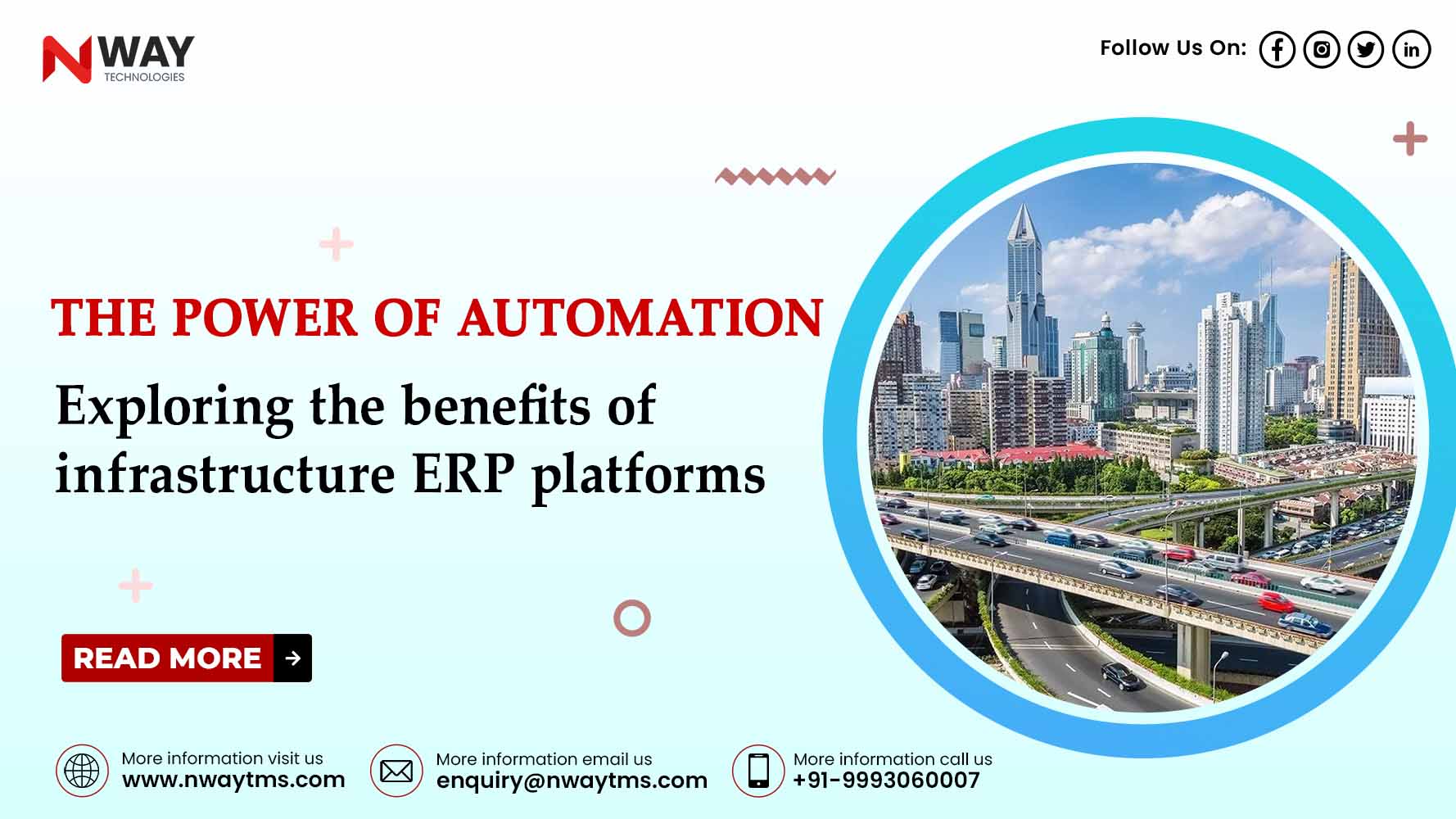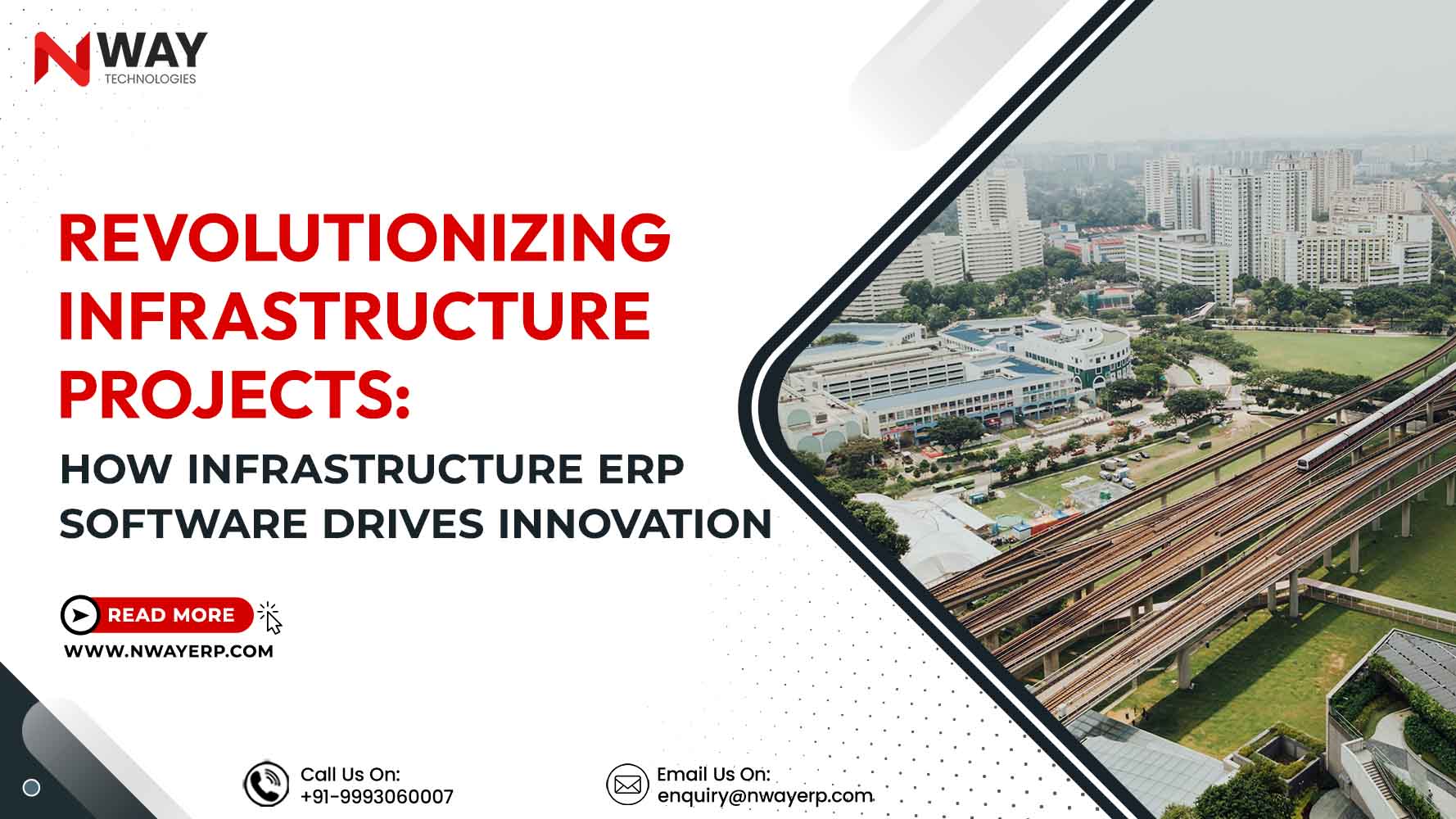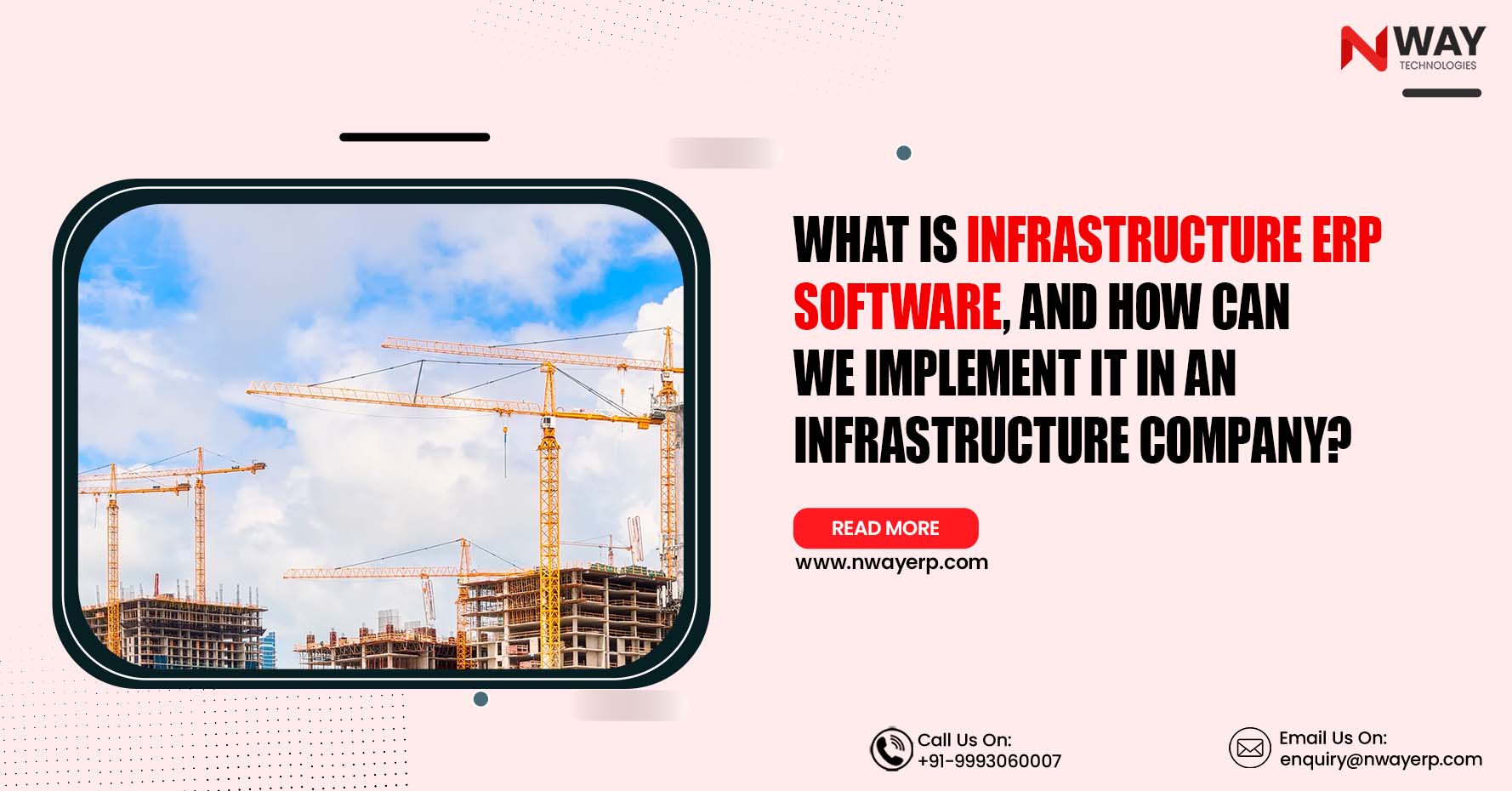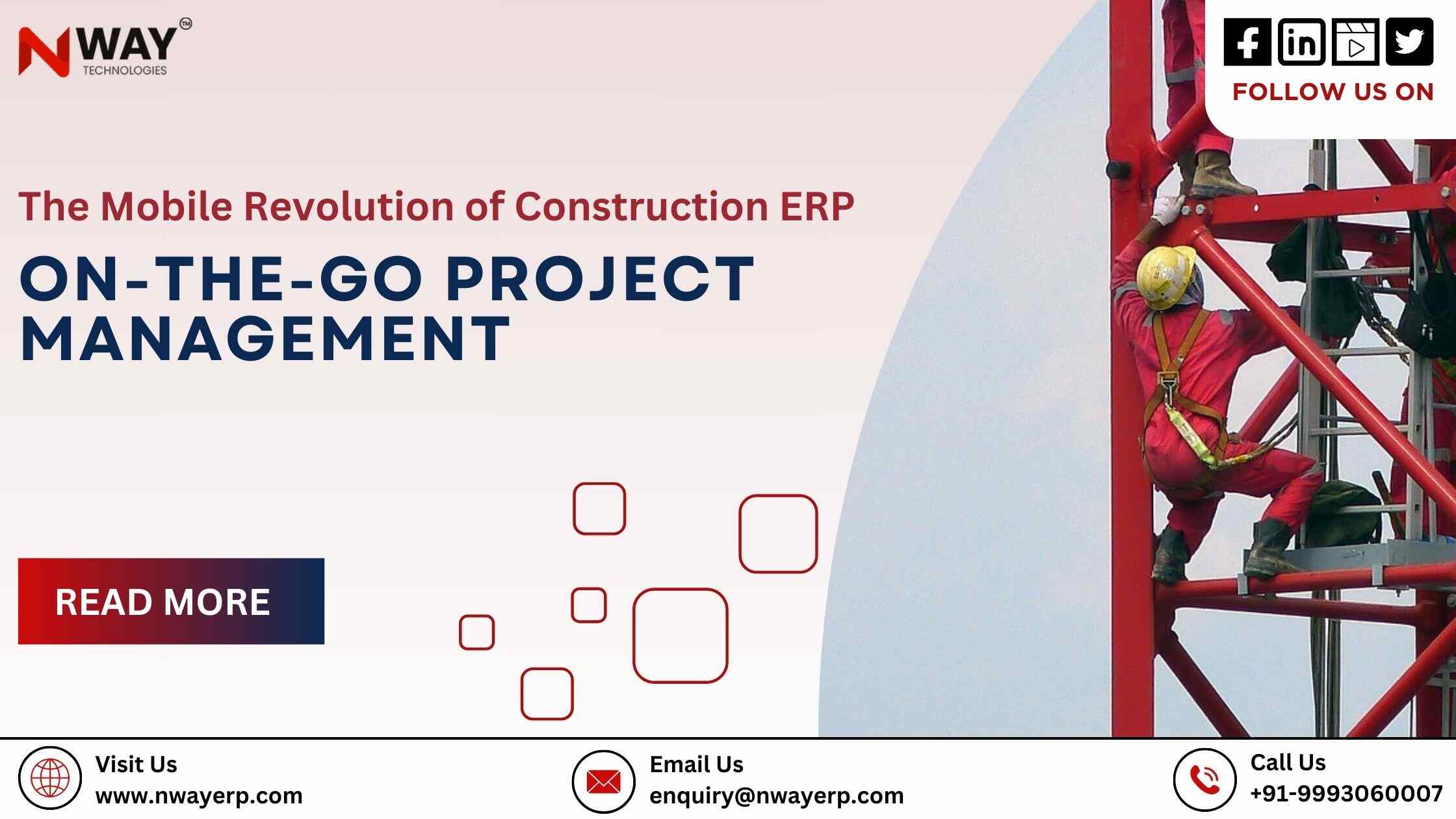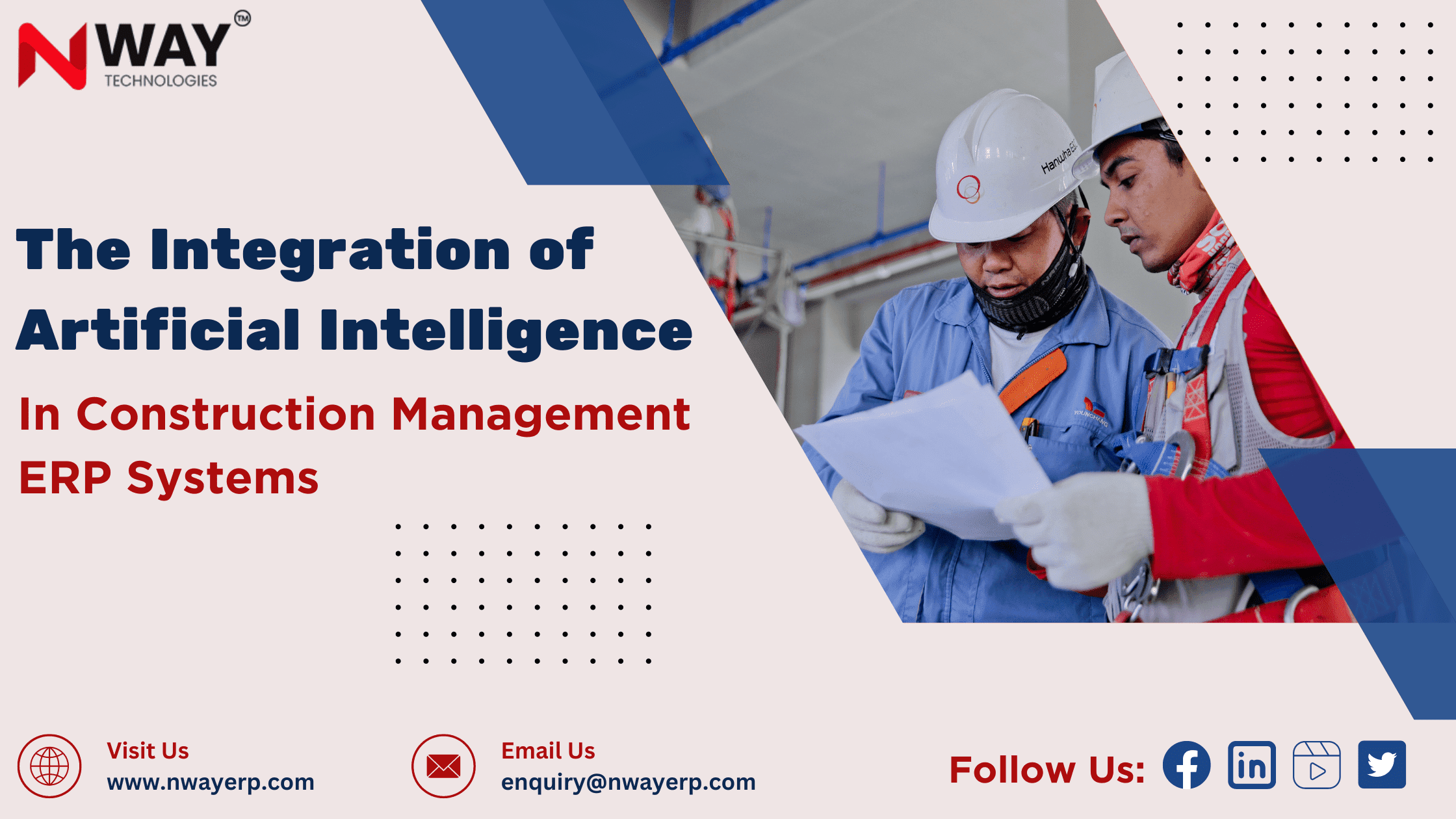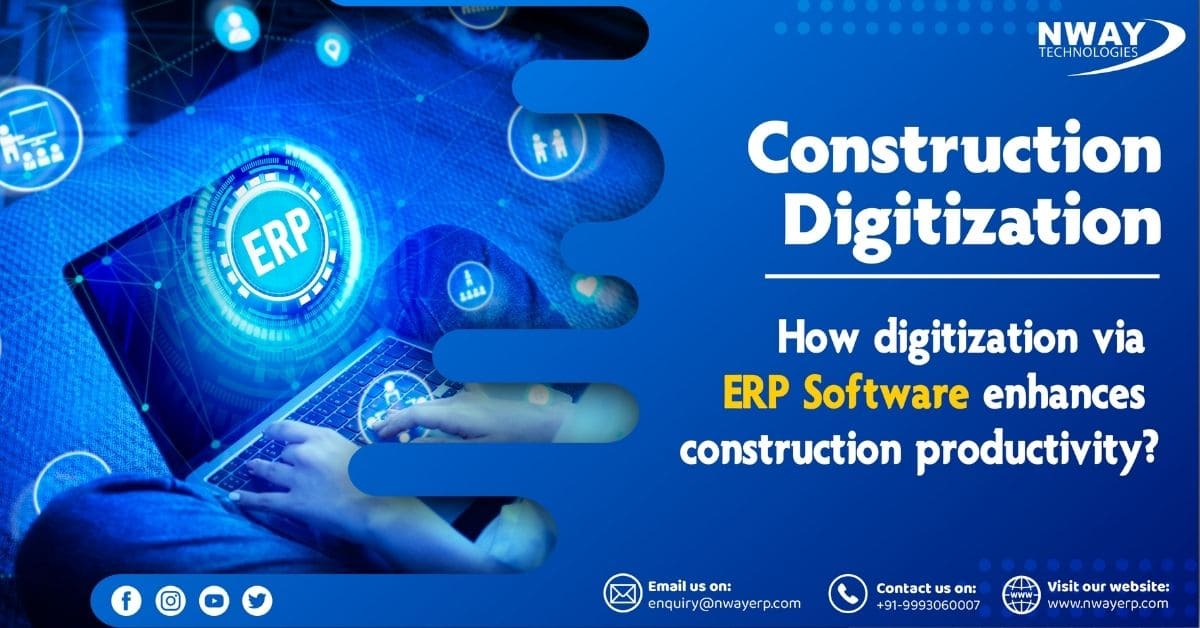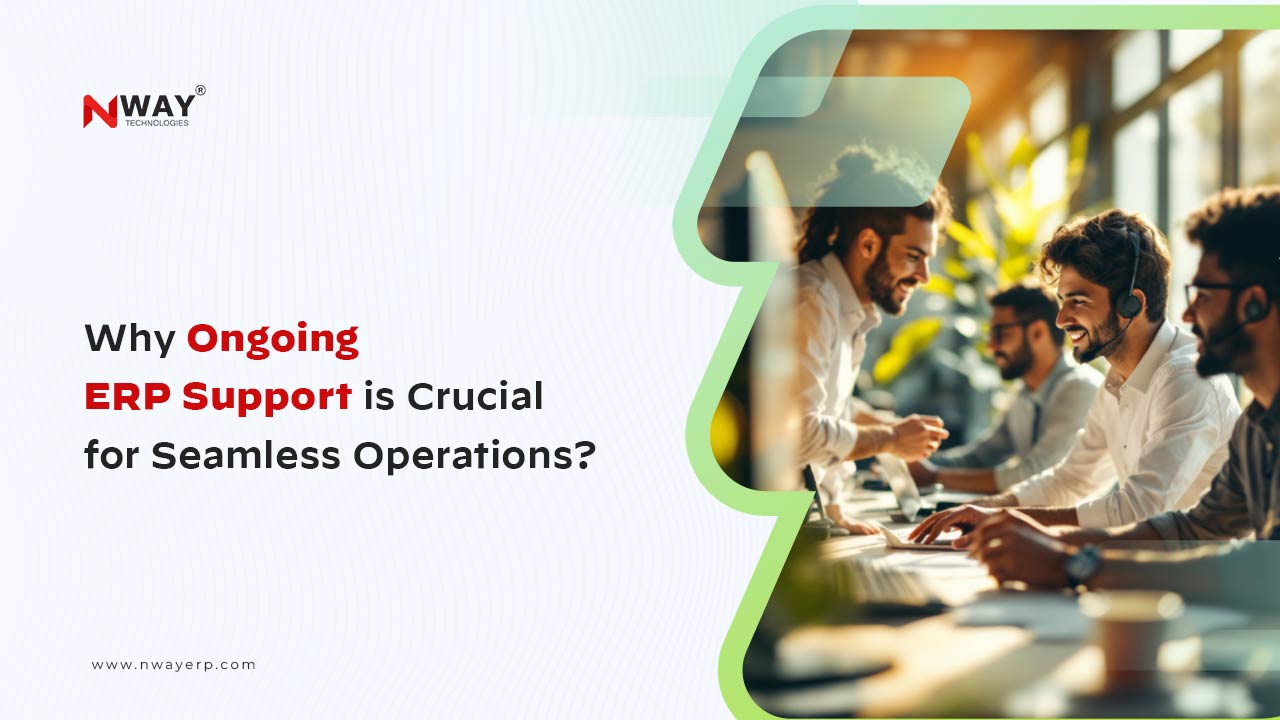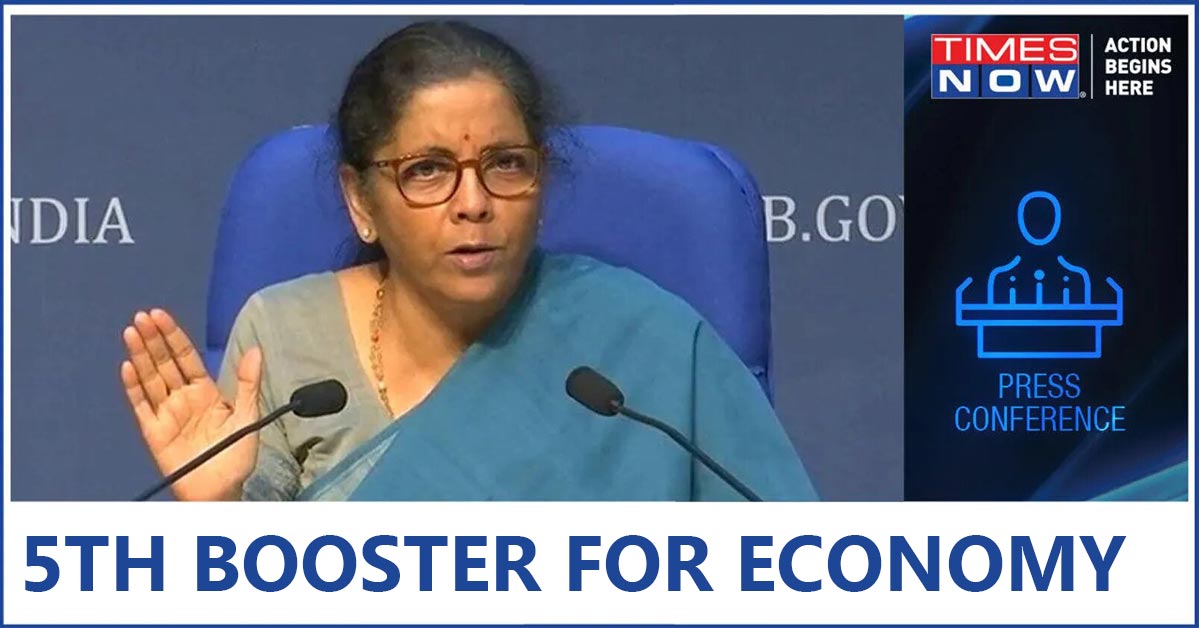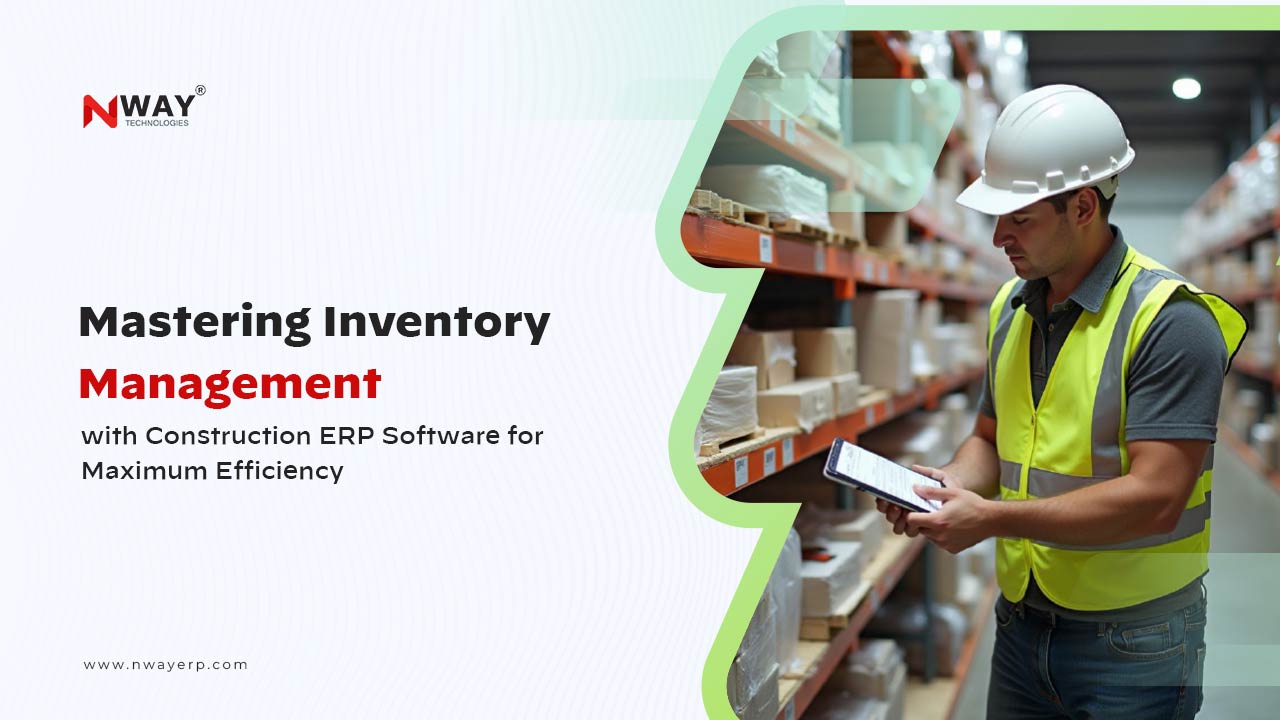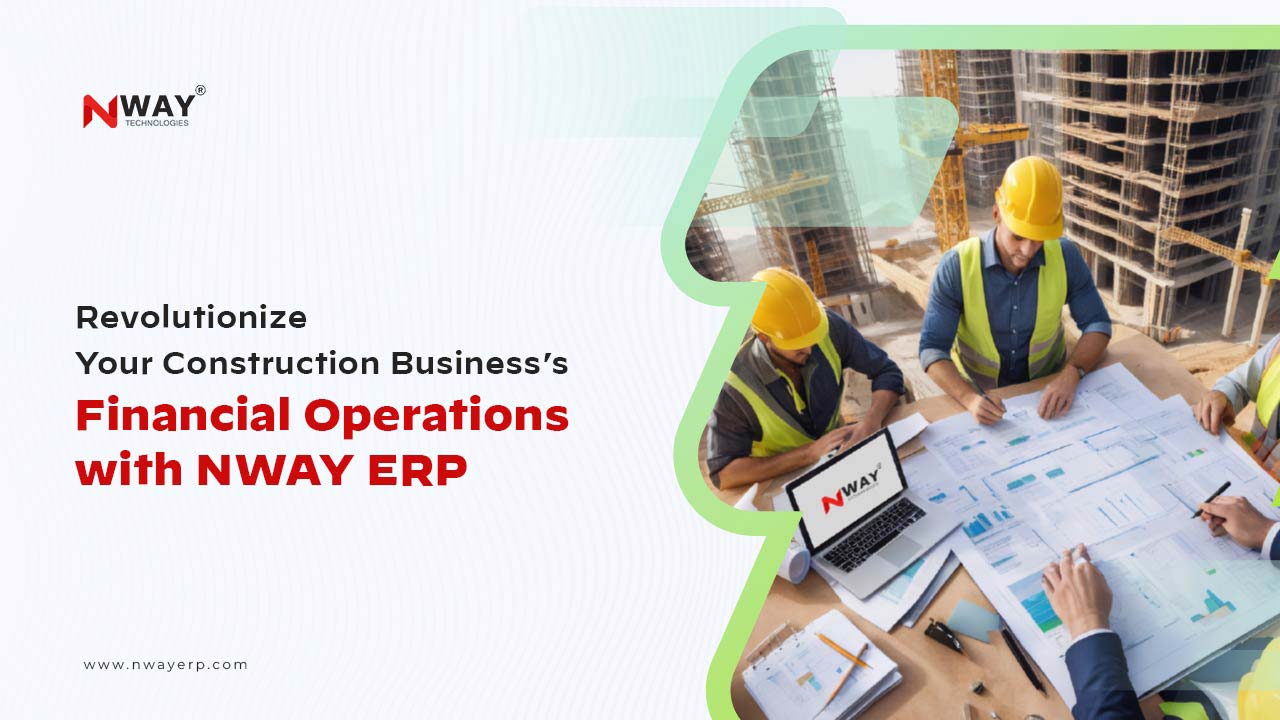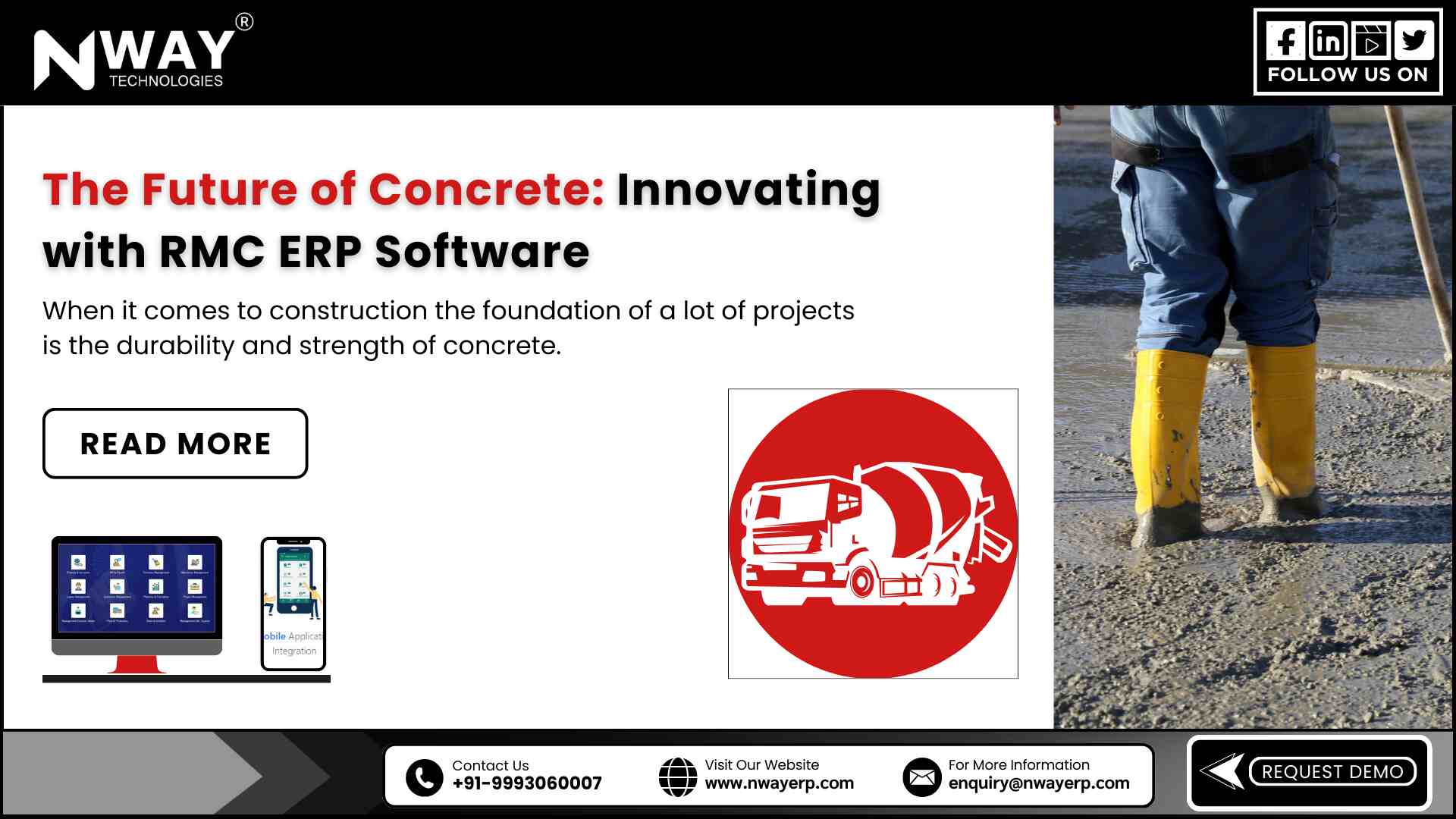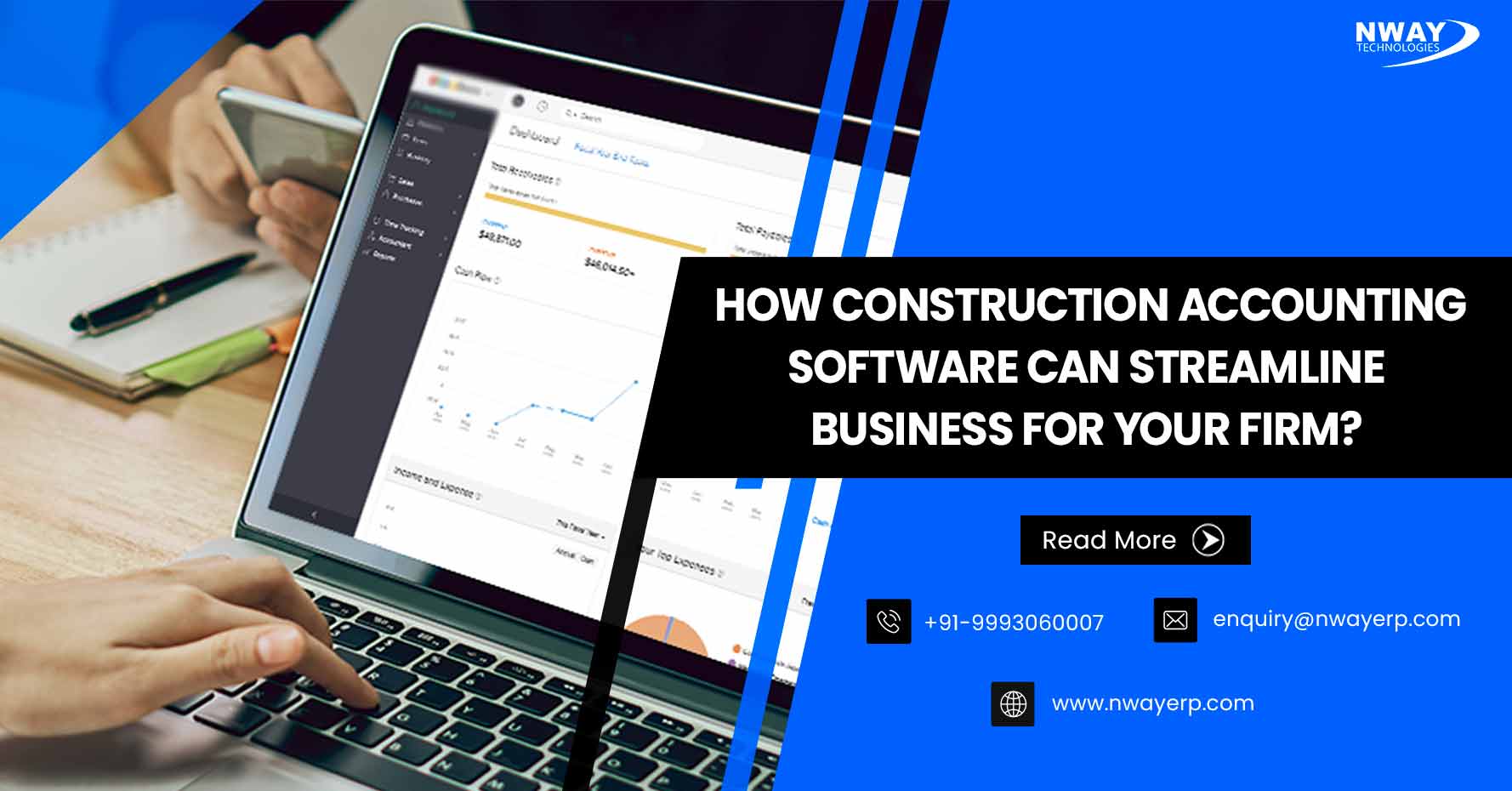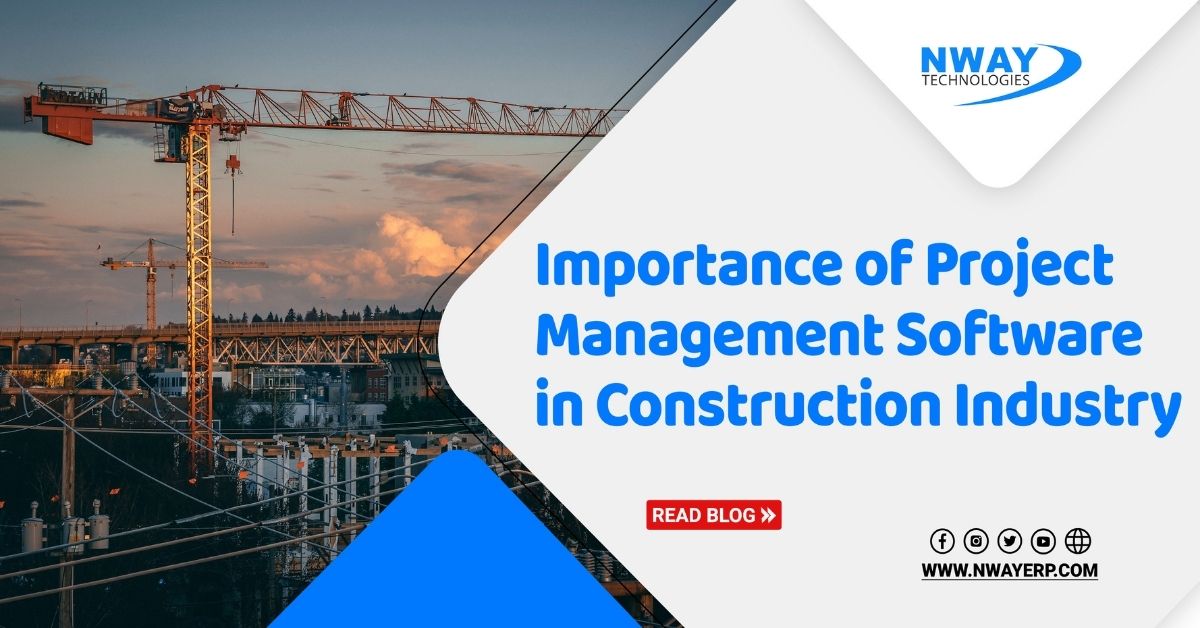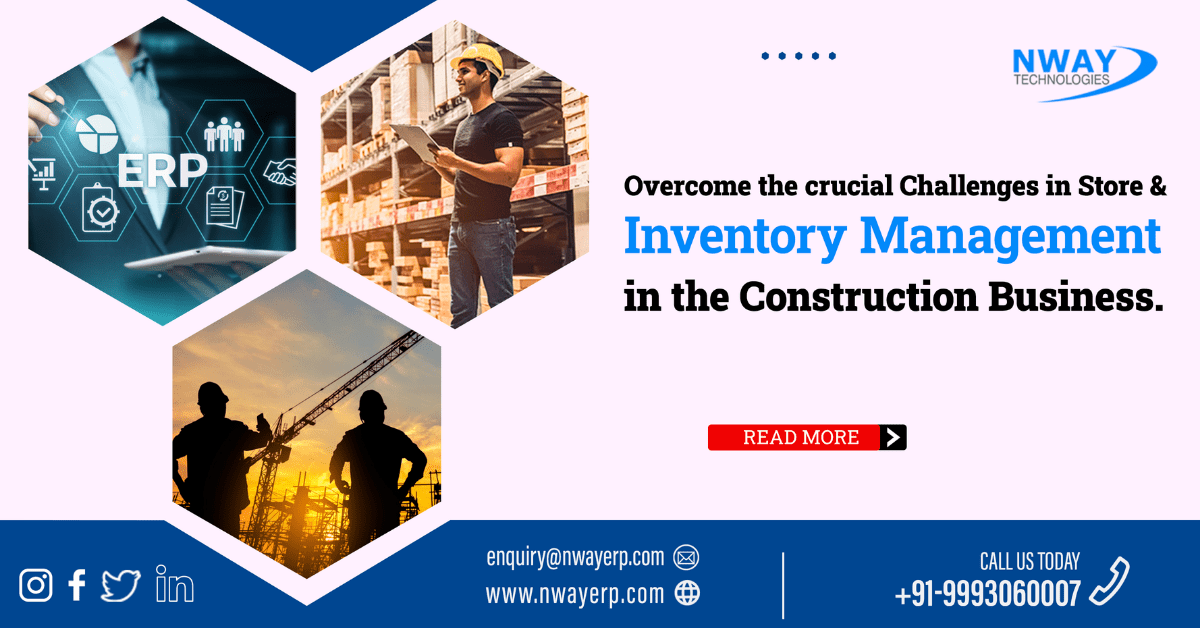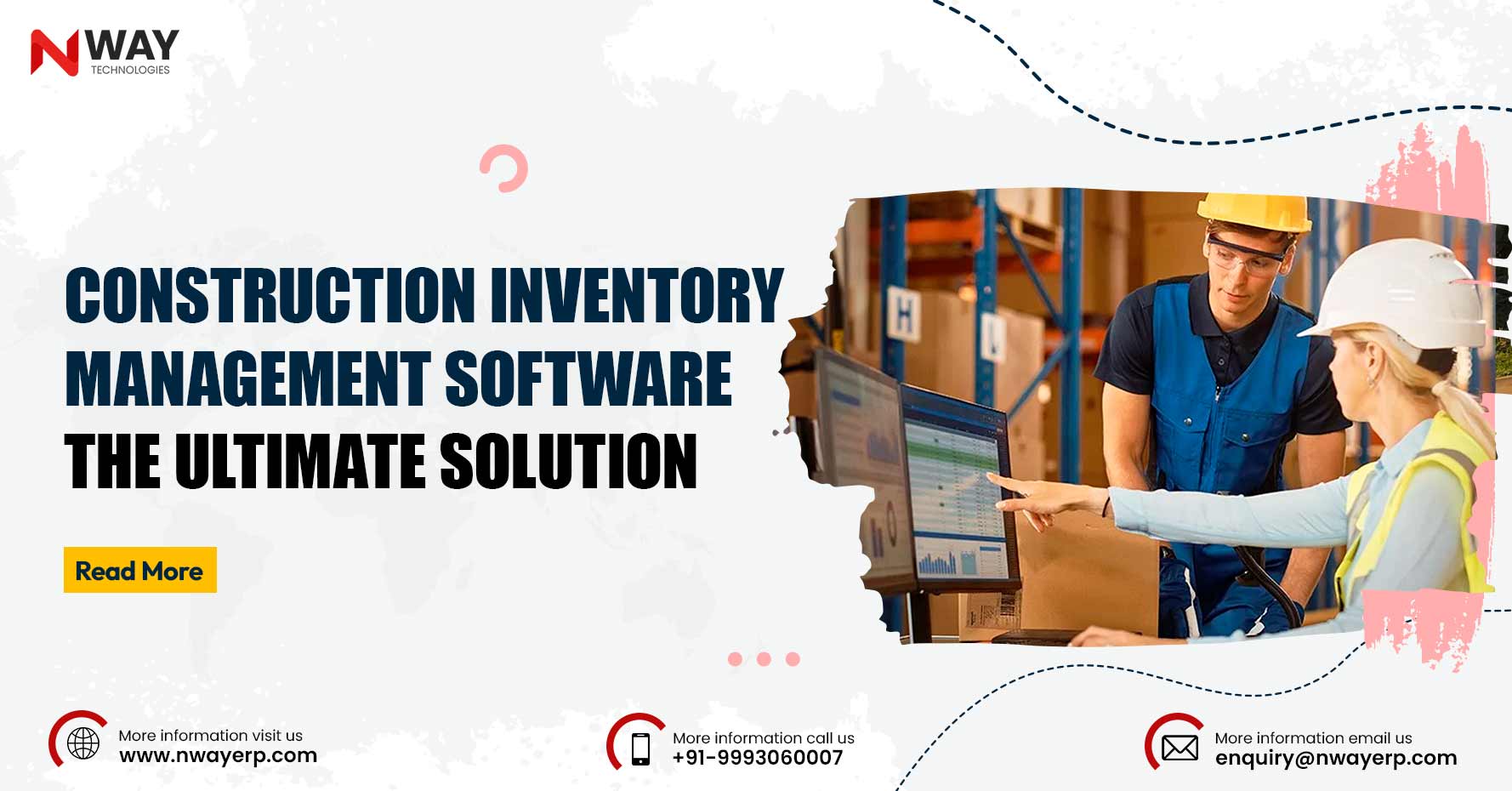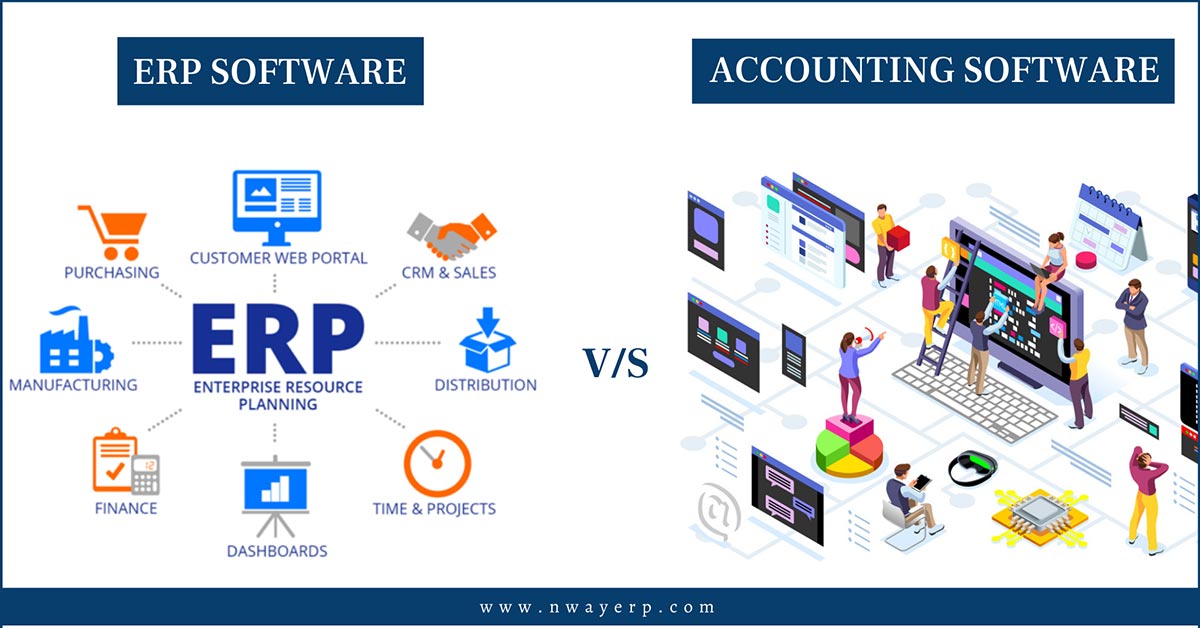Blogs
-
Dec 18 2024The construction industry is vast and needs precision, efficiency, and cost-effectiveness at every stage. A good construction ERP software can help businesses stay competitive and manage all their operations efficiently. However, with numerous options available, choosing the right ERP software is a daunting task. Read this blog and walk through the critical factors that should be considered while choosing the best ERP software to streamline your business and construction processes. Key Takeaways: Introduction Importance of ERP for Construction Companies Key Features of Good Construction ERP Software Steps to Consider while Choosing Construction ERP Software Conclusion Importance of ERP for Construction Companies Construction projects involve complex operations like materials, manpower, machinery, and more. An ERP system provides efficient management of all these resources resolving all the major challenges like: Fragmented Data: Siloed data across departments leading to errors and mismanagement. Cost Overruns: Inefficient planning & tracking and cost analysis can result in cost overruns. Delays: Ineffective communication and scheduling issues delay the projects in unexpected ways. The right construction ERP software centralizes data, automates processes, and provides real-time insights, enabling better decision-making, improved efficiency, and increased profitability. Key Features of an Effective Construction Software Choosing a good construction ERP software is
-
Dec 18 2024The construction industry is one of the most complex and demanding industries, requiring meticulous planning, coordination, and execution. Construction companies face numerous challenges from managing multiple projects to ensuring compliance, tracking expenses, and optimizing resources. Construction ERP software provides project management, streamlines operations, and significantly boosts Return on Investment (ROI). Read this blog to learn how construction ERP software is changing the entire landscape in the industry, the challenges it addresses, its core functionalities, and how it delivers tangible advantages like enhanced efficiency, reduced costs, and improved decision-making, which impact the overall ROI for construction companies. Key Takeaways: Introduction Challenges in Construction Project Management How can an ERP for Construction Solve all these Challenges? 7 Core Features of Construction ERP Software How Can a Best Construction ERP Software Boost ROI? Conclusion Challenges in Construction Project Management Before diving into the features and benefits of ERP software, it’s essential to understand the common challenges faced by construction companies: 01. Fragmented Data and Communication Construction projects involve multiple stakeholders, including architects, engineers, contractors, suppliers, and clients. A lack of centralized data and communication channels often leads to misappropriation of objectives and costly mistakes. 02. Ineffective Resource Allocation Proper resource allocation, such as
-
Dec 07 2024The construction industry is one of the fastest-growing industries yet has its challenges. It involves complex project management, stringent deadlines, budget constraints, and coordination among various stakeholders. With the increasing scale and complexity of modern construction projects, an ERP system for construction companies helps in managing these tasks eliminating the traditional methods, it is considered as an All-in-One Construction Software that emerges as a complete solution. Read this blog to delve deeply into the concept of all-in-one construction software, its features, benefits, and why it is the ultimate solution for modern builders, contractors, and subcontractors. Also, learn how it can help companies strive for efficiency, accuracy, transparency, and seamless management. Key Takeaways Introduction How Construction ERP Works? Key Features Benefits Why do Modern Builders need to Opt for an ERP system? Real-World Applications Conclusion How is ERP Software for Construction Works? ERP software for construction companies works as a tool that provides digitalization to integrate and streamline every aspect of a construction project. From project planning to execution, budgeting, resource management, and reporting. It provides a centralized hub to solve all the construction operations from anywhere at any time. It also enhances collaboration, reduces errors, and boosts productivity. Key Features
-
Dec 06 2024NWAY ERP is proud to participate in bauma CONEXPO INDIA 2024, a premier event in the construction industry, building materials, and mining machinery sectors. Held from December 11 – 14, 2024, at the India Expo Mart in Greater Noida, this trade fair is set to bring together 75,000+ professionals from over 100 countries, alongside 800+ exhibitors showcasing cutting-edge solutions across 135,000 square meters of exhibition space. Why Should You Visit NWAY ERP at bauma? NWAY ERP: Driving Efficiency in the Construction World NWAY ERP is a leading provider of industry-specific ERP software designed to simplify and optimize operations for construction companies. Known for its innovation and customer-centric approach, NWAY ERP Software integrates project management, financial systems, resource planning, and advanced analytics into a unified platform tailored to meet the unique needs of the construction industry. At bauma, CONEXPO INDIA 2024, NWAY with its construction ERP Software is thrilled to showcase its features, capabilities, and advanced methods for construction businesses. As a proud participant in this globally recognized event, we are aiming to highlight how robust and feature-rich ERP software can empower companies to tackle industry challenges, improve project performance, efficiency, and drive sustainable growth. Highlights of NWAY’s Booth at the
-
Dec 02 2024The construction industry is huge and involves various operations, stakeholders, locations, and processes. From managing budgets and timelines to ensuring quality and compliance, the challenges can seem insurmountable. Construction ERP software can simplify these complexities and bring unparalleled efficiency to your projects. Read this blog to learn more about why project management in construction is necessary and how ERP software can become a game-changer, covering features, benefits, and cognitive benefits for your organization. Key Takeaways: Introduction Role of Construction ERP Software Key Features of Construction ERP Software Why Construction ERP Software is a Game-Changer The Challenges Faced by Construction Companies How does construction ERP software address these challenges? Adopting Construction ERP Software: Key Considerations Conclusion Role of Construction ERP Software in the Construction Industry Construction ERP software is an integrated solution tailored for the construction industry. It provides a centralized platform to manage all facets of construction projects, such as planning, procurement, inventory, workforce, finances, and reporting. It is specifically designed to address the unique challenges and helps achieve seamless collaboration, enhanced decision-making, and better project management. Key Features of Construction ERP Software Comprehensive Project Management Centralized dashboard to manage multiple projects Real-time tracking of progress and milestones Tools for
-
Nov 22 2024The construction industry is one of the fastest-growing companies around the world. It is evolving rapidly, and contractors, subcontractors, and construction management professionals are more specifically looking to adopt technologies that can help them improve their processes eliminating major challenges. In 2025, companies must adopt construction ERP software that can stand as a cornerstone to streamline their operations and maintain a competitive advantage. Read this blog to learn about the top 10 features that define usage and its worth for resolving major construction challenges and improving productivity in 2025. Features of the Best Construction ERP Software for 2025 01. Real-Time Project Management Project management is one of the most critical operations in any construction company. It involves multiple operations for multiple projects. A modern ERP for the construction industry provides real-time project management tools. It ensures that project managers can monitor every aspect of the projects– from timelines to ensure resource allocation without delays. Why It Matters ERP software ensures that all project operations go smoothly, avoiding any delays in communication or data and budget management. It also helps in keeping track of all activities and operations. Key Capabilities Instant Progress Tracking Notifications and Alerts to Avoid Delays Quick Dashboards
-
Nov 21 2024The construction industry in India is expanding rapidly, it is one of the most important contributors to economic growth, leading to a significant increase in GDP and employment. Despite all these, the construction sector faces persistent challenges, including project delays, budget overruns, resource mismanagement, and lack of communication. In the complex environment, construction ERP software has emerged as a game-changing solution, empowering companies to streamline their operations and achieve unprecedented levels of efficiency. In this blog let’s explore how construction ERP software is revolutionizing project management and its transformative impact on the industry. Key Takeaways: What is Construction ERP Software? How is it beneficial for Indian Construction Companies? Key Features of Construction ERP Software Benefits of Construction Project Management ERP Software The Impact of Construction ERP Software in India Choosing the Right Construction ERP Software Closing Notes What is Construction ERP Software? Construction ERP software is a comprehensive platform designed specifically for the construction industry. It can streamline all the aspects of project management. It can also control resource planning, budgeting, inventory management, HR management, and compliance, into a unified system. How is Construction ERP Software Beneficial for Indian Construction Companies? High competition, stringent regulations, and a diverse range of
-
Nov 16 2024The road construction industry is shaping the nation’s infrastructure, fueling economic growth and ensuring safe, efficient transportation. Yet, companies face various challenges in managing road construction processes like cost management, with compliance and safety regulations. Road construction is an inherently complex process with numerous challenges, from cost management to logistics and compliance with safety regulations. To overcome these challenges, companies must opt for road construction management software. It can streamline operations, reduce inefficiencies, and drive sustainable success. Read this blog to delve into the primary challenges faced by road construction companies and how road construction management software can provide effective solutions. Key Takeaways Introduction Key Challenges in Road Construction How Does Road Construction Software Address These Challenges? Challenges in Selecting a Road Construction Software Conclusion Key Challenges in Road Construction Management Road construction companies frequently encounter challenges that can affect the timeline, budget, and overall success of projects. Here are the most difficulties they face: 01Project Management Complexities Managing a road construction project requires precise planning and coordination of various components, including time, materials, labor, and machinery. Miscommunication, delayed approvals, and poor scheduling can lead to costly overruns and delayed project completion. 02Cost Overruns Cost overruns are a persistent challenge
-
Nov 14 2024Various industries worldwide are growing rapidly with technological advancements. As they grow, their workforce and operations scale up significantly, demanding that the company workflow evolve to manage these increased responsibilities effectively. This is where construction ERP software becomes crucial, offering the support needed to manage expansion and maintain growth momentum. In this blog, let’s look at construction ERP software and how it can help construction companies grow. What is Construction ERP Software? Construction ERP software is a comprehensive system that streamlines all aspects of a construction business. It integrates processes like project management, accounting, procurement, inventory, payroll, and more into a single platform. This helps improve efficiency, enhance collaboration, track project progress, control costs, and ensure smooth decision-making. Effective utilization creates a smooth chain to manage complex projects and scale operations effectively. 01Project Management Track project timelines, budgets, tasks, and resource allocation for effective project management. 02Cost Estimation and Budgeting A good ERP software provides tools for accurate cost forecasting, budgeting, and real-time cost tracking. 03Accounting & Financial Management Manage billing, invoicing payroll, cash flow, and financial reporting. 04Procurement and Inventory Management Upholds the entire purchase process, supplier management, and inventory tracking. 05Multi-Site and Multi-Company Support Manages projects across different
-
Nov 11 2024In the fast-paced environment of the construction world, managing projects efficiently while maintaining accuracy is crucial. Various construction companies are getting a clear path to efficiently handle their projects using construction ERP software. It provides visibility into every aspect of their projects, from resource allocation and scheduling to cost management and compliance. This will also help companies empower stakeholders to make informed decisions, ensuring projects stay on time and within budget. Let’s deep dive into this blog and explore how real-time project tracking software enhances road construction by optimizing project management and improving overall efficiency. Centralized Project Management With an ERP for road construction, companies can get a single platform to manage all aspects of any project. From planning and resource allocation to scheduling and execution, every detail can be tracked in one place. This centralized management improves communication between departments and ensures that everyone is working with the same up-to-date information, reducing the risk of miscommunication. Real-Time Tracking One of the standout features of ERP for road construction is the ability to track project progress in real-time. Managers can monitor every stage of the project, receive updates on work completed, and track progress so that the project is on
-
Oct 18 2024Road construction is among the most important and complex ventures in the construction industry. It requires meticulous planning, coordination among diverse stakeholders, and the efficient use of resources. Companies that still operate with disjointed systems and cumbersome paperwork remain slow at managing their operations. Construction ERP software holds the ability to manage operations at a centralized platform avoiding budget overruns and maintaining financial records. A road construction ERP has emerged as a game-changer solution to these challenges. It can streamline operations and automate processes across various departments, including finance, procurement, project management, human resources, and more. Streamlining all these processes can improve budgets and costs reducing errors, delays, and cost overruns. Let’s discuss some of the challenges in managing road construction operations. Challenges in Budget and Cost Management in Road Construction Unpredictable Costs The construction industry is unpredictable and involves sudden cost fluctuations. Labor shortages, unexpected environmental issues, or changes in material prices can all impact the project budget. Road construction companies are especially concerned about this because they operate in open and dynamic environments where unforeseen challenges, such as disruptions or supply chain delays, are common. Fragmented Financial Data Many road construction companies still rely on legacy systems or
-
Oct 11 2024The construction industry is vast and involves multiple operations ranging from managing large-scale projects to coordinating multiple stakeholders. With the rising challenges comes proven technology. Here in the construction world, that proven technology is the advent of construction ERP. A good construction ERP software can significantly reshape the overall working and methodology of how a construction company works. It helps in unleashing the real potential and resolving the major challenges of a construction company. As we are about to step into another year, let’s explore how companies grew to adopt construction ERP software in 2024. In this blog, we will explore how companies grew with construction ERP software in 2024, their role in driving success, and how they have transformed the industry landscape. Challenges and Their Solutions with a Feature-Rich Construction ERP Software Managing Project Complexity Managing multiple projects simultaneously at different sites becomes difficult. A good construction ERP software improves the entire project lifecycle, from planning, and budgeting, to even completion of the project. With centralized management and data flows, companies have found it extremely easy to manage projects effectively. Features of Project Management with Construction ERP Software Improved CollaborationERP software provides a centralized platform to manage all the
-
Oct 07 2024In the modern construction industry, there are various projects like roads, bridges, buildings, and more. Managing these projects is a highly complex task that needs precise coordination, resource management, and real-time tracking of progress. Specifically, bridge construction presents unique challenges, from securing raw materials to managing timeliness and ensuring compliance with local regulations. Bridge construction, in particular, brings a unique challenge, from securing raw materials to managing efficient compliance. Construction ERP in bridge construction can help construction companies address these challenges by streamlining various aspects of improving communication and enabling data-driven decision-making. In this blog, let’s explore how Construction ERP software for bridges can enhance efficiency and enable project management to deliver quality construction. What is the Role of ERP in the Construction Industry? Construction ERP software for bridges helps integrate various business processes into a unified system. An ERP system brings together different functions such as procurement, inventory management, human resources, financial management, project management, and more in a centralized platform. This also allows better control, coordination, and monitoring of various aspects of the construction process. Challenges Faced in Bridge Construction Bridge construction is one of the most popular forms of construction projects and modern construction techniques rapidly involve
-
Sep 28 2024In the dynamic world of the construction industry, efficient management of plant and machinery is crucial to a project’s success. Whether it’s handling heavy machinery, tracking equipment usage, scheduling maintenance, or managing costs, businesses need an integrated system that ensures everything runs smoothly. In this blog, let’s explore how ERP software can streamline plants and machinery. Role of Plant & Machinery in Construction In the construction industry, plants and machinery are the backbone and crucial for various operations. It is an asset that directly impacts the project’s efficiency, cost, and timeline. Equipment such as excavators, loaders, cranes, and concrete mixers allow construction teams to perform tasks that would otherwise be impossible or highly time-consuming. Effective plant and machinery management is crucial because: Operational Efficiency: Timely maintenance and effective equipment functioning ensure the smooth running of each project. Cost Control: Maintenance costs and downtime escalate quickly without proper management. Safety and Compliance: Ensure the right equipment is available at the right time with improved safety and compliance with industry standards. Sustainability: Reducing energy consumption prolongs the life of machinery and promotes environmental sustainability. Challenges in Plant & Machinery Management Maintenance Scheduling: Ensuring that machinery is well-maintained to avoid breakdowns can be
-
Sep 16 2024The construction industry is vast and involves various operations at every end. A single project includes multiple operations from procurement, finance, labor management, and more to managing projects following the same chain. Tracking every activity employees perform at any project or site becomes difficult. A well-implemented Daily Progress Report (DPR) can solve this problem. It can help keep track of all the activities that are being performed by employees for different operations, projects, and locations. Understanding and utilizing DPR in construction project management is necessary for modern and growth-seeking construction companies. In this blog, let’s explore the meaning, need, and importance of DPR for the construction industry. What is a DPR in the Construction Industry? A Daily Progress Report (DPR) in the construction industry provides a snapshot of the daily activities, progress, and events at a construction project or site. It captures complete information on various aspects of work like labor and equipment used, materials consumed, issues encountered due to weather conditions, delays due to material shortage, or any other reasons. Basic Components of a DPR: Work Progress It includes the details of the task assigned. Material Usage It records the materials delivered and used at a site or location.
